
Report on the 2024 summer NABCs in Toronto (updated 5/08/24)

The NABC Summer Nationals in Toronto 2024
The Grand National Teams: From a Cast of Thousands
The NABC Summer Nationals in Toronto 2024
Over 10 days bridge players from across North America and all the continents have been testing their skills in Toronto, one of the most cosmopolitan cities in the world.
The capital of Ontario has always been one of the most popular venues for the Nationals; when the city last hosted the Summer NABC in 2017 it attracted 13,289 tables. (In 1986 Toronto recorded 21,075 tables, a figure only exceeded by the 24,221 recorded for Las Vegas in 1991.)


We will bring you news from the principal events:
The Grand National Teams was introduced in 1973. Jeff Meckstroth has been on the winning team on no less than 15 occasions!
The von Zedtwitz Life Master Pairs is named in honour of Waldemar von Zedtwitz who was one of the founding members of the ACBL’s Hall of Fame in 1995.
The Spingold Trophy (donated by Nathan B Spingold in 1934) will attract a field to rival that of any World or European Championship.
The Chicago Mixed Board-a-Match Teams for the Richard Freeman Memorial Trophy celebrates one of the oldest events in the ACBL’s calendar, having been contested for the first time in 1929.
The tournament is not all about superstars!
The Summer Nationals incorporate the Youth NABC and affords competitors the opportunity to win scholarships through the Collegiate Bridge Bowl, the YNABC, the King/Queen of Bridge and the Leonard Helman Memorial Youth Scholarship.
There are also innumerable tournaments and side games, including Regional Pairs and Teams and Gold Rush & Intermediate/Newcomer Events.
Throughout the tournament, participants have been able to attend daily educational seminars and numerous entertainment events, including Beyond Bridge, which involves karaoke, board games, foosball, and Bridge Mania, which features Jeopardy & Family Feud.
The Grand National Teams: From a Cast of Thousands
From the thousands of teams who started out in the various Districts of the ACBL in the Grand National Teams we were down to just two, those representing District 17 (Alain Schreiber & Billy Miller, Roger Lee & Robert Levin, Geoff Hampson & Brad Moss) and District 25 (Harrison Luba & Cenk Tunçok, Emma Kolesnik & Adam Grossack).
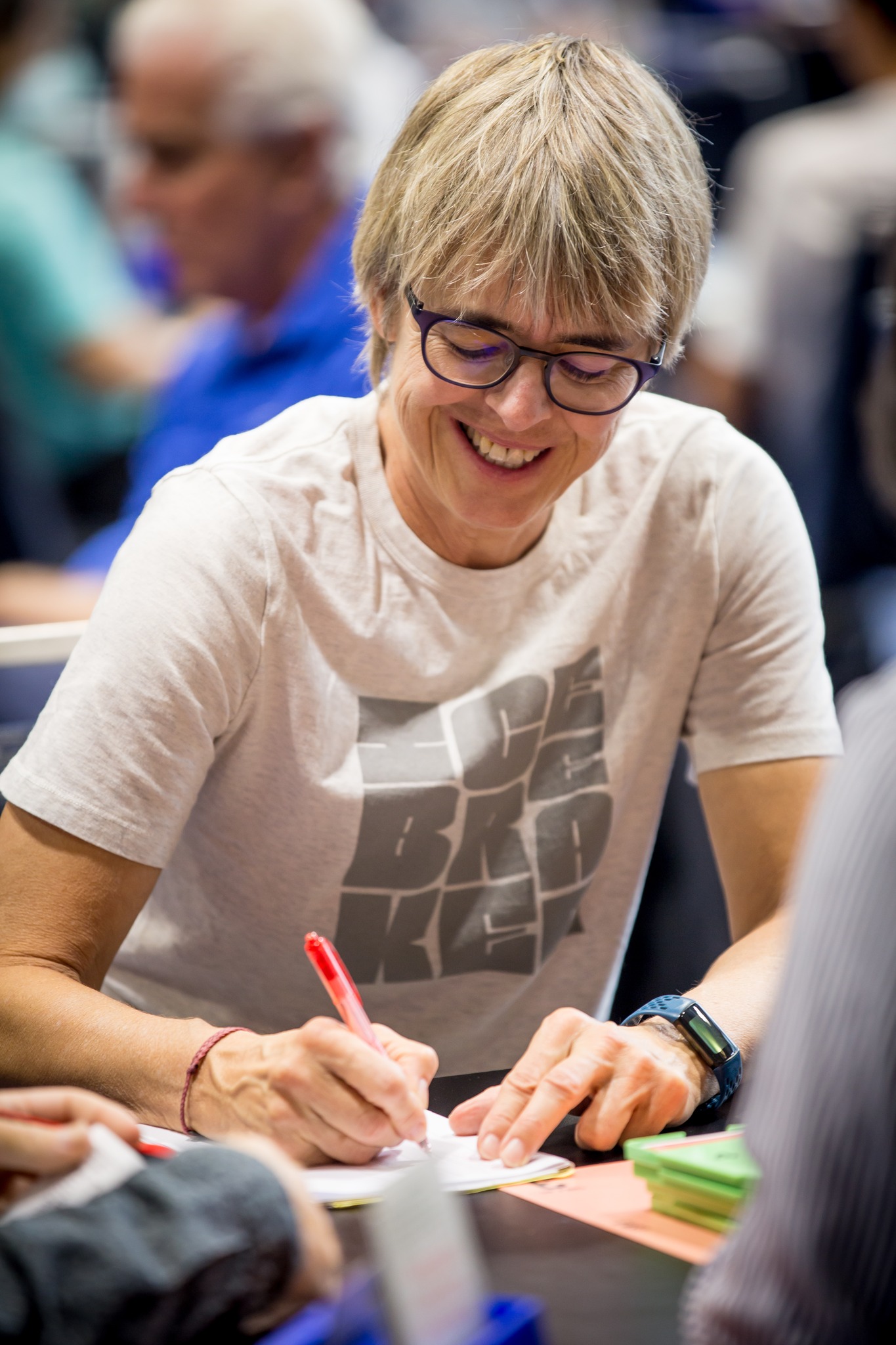
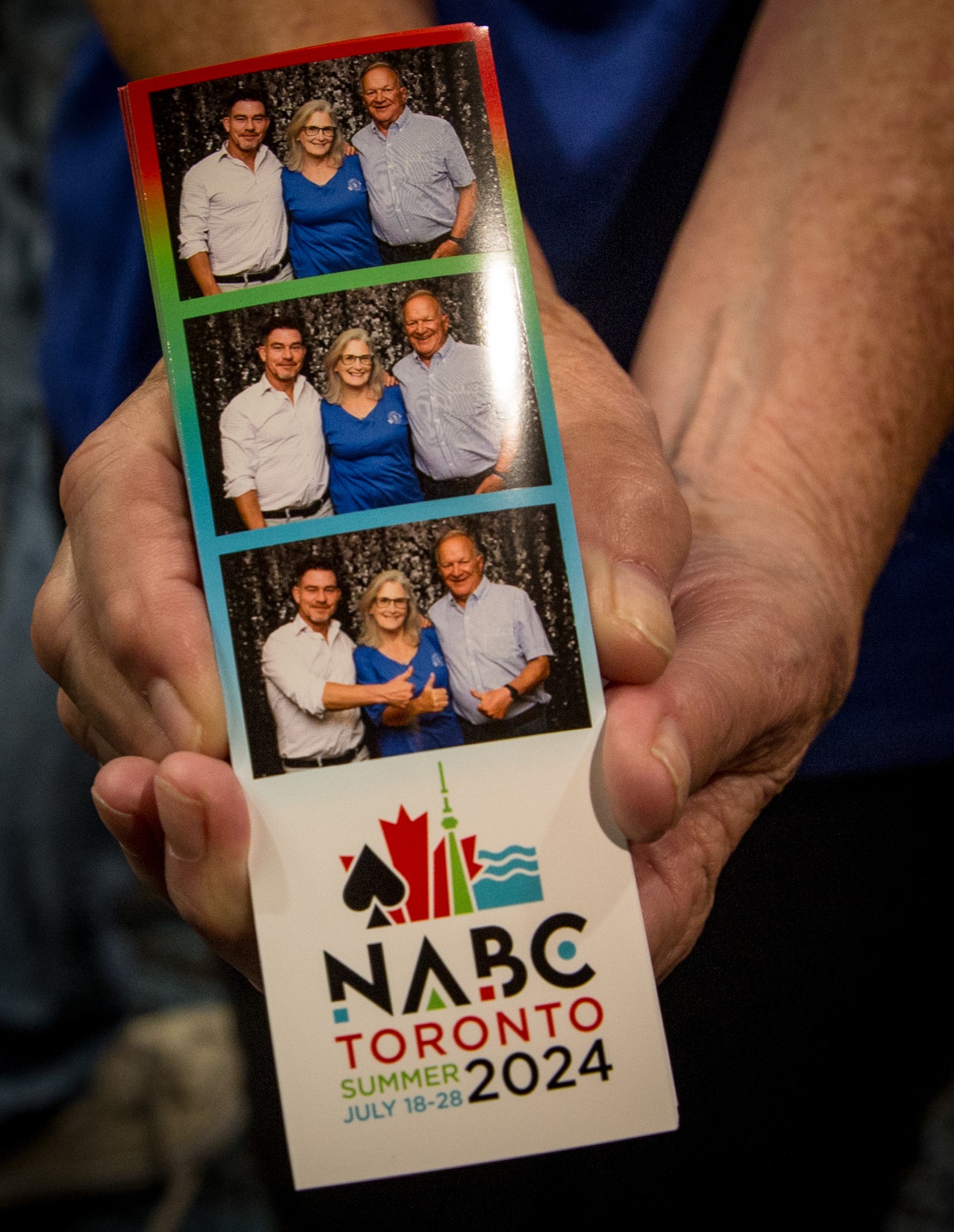
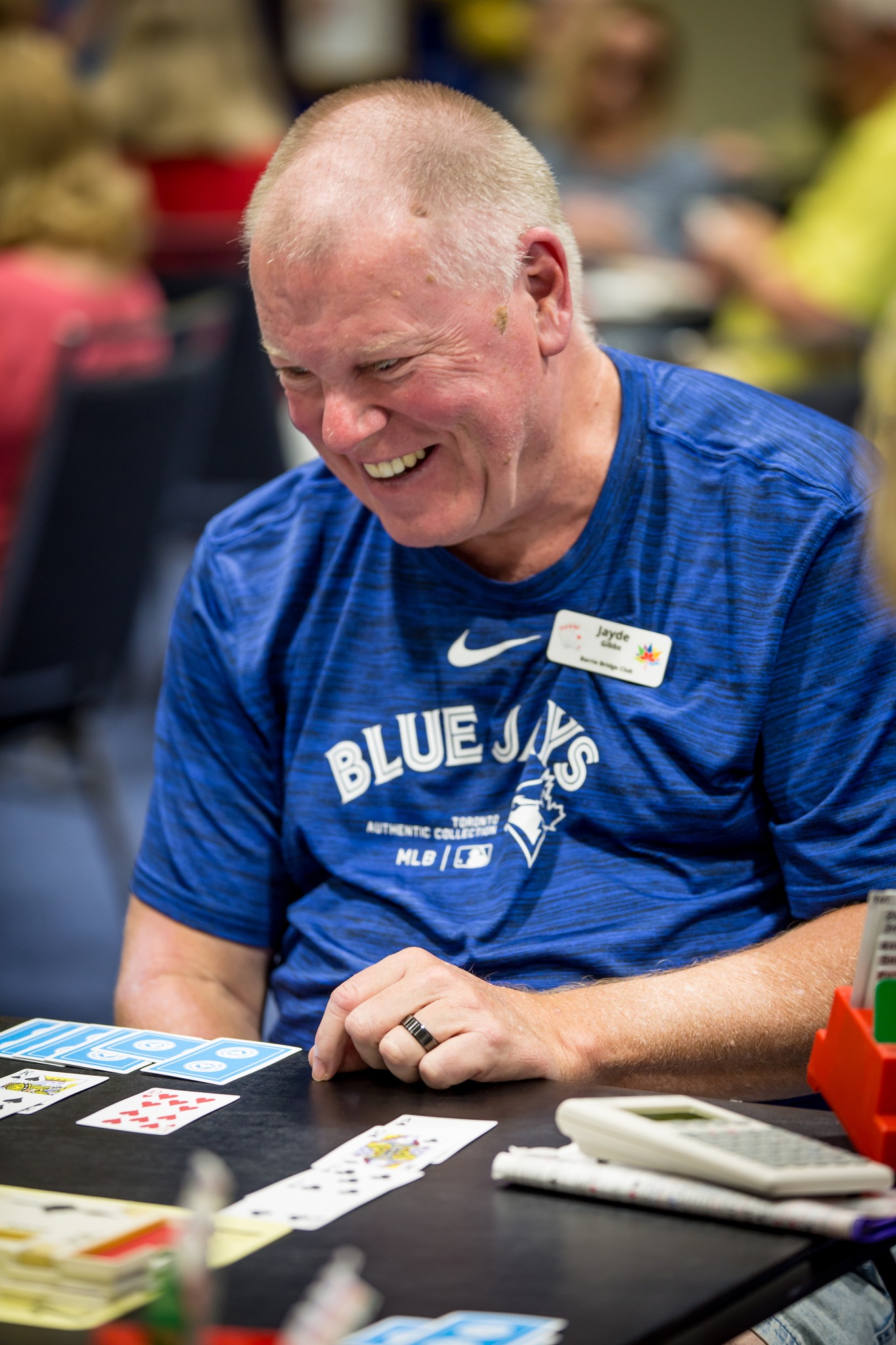
In any long match you can be reasonably sure that the slam deals will play an important part.
Here are three from the final of the Grand National Teams:
Board 13. Dealer North. All Vul.
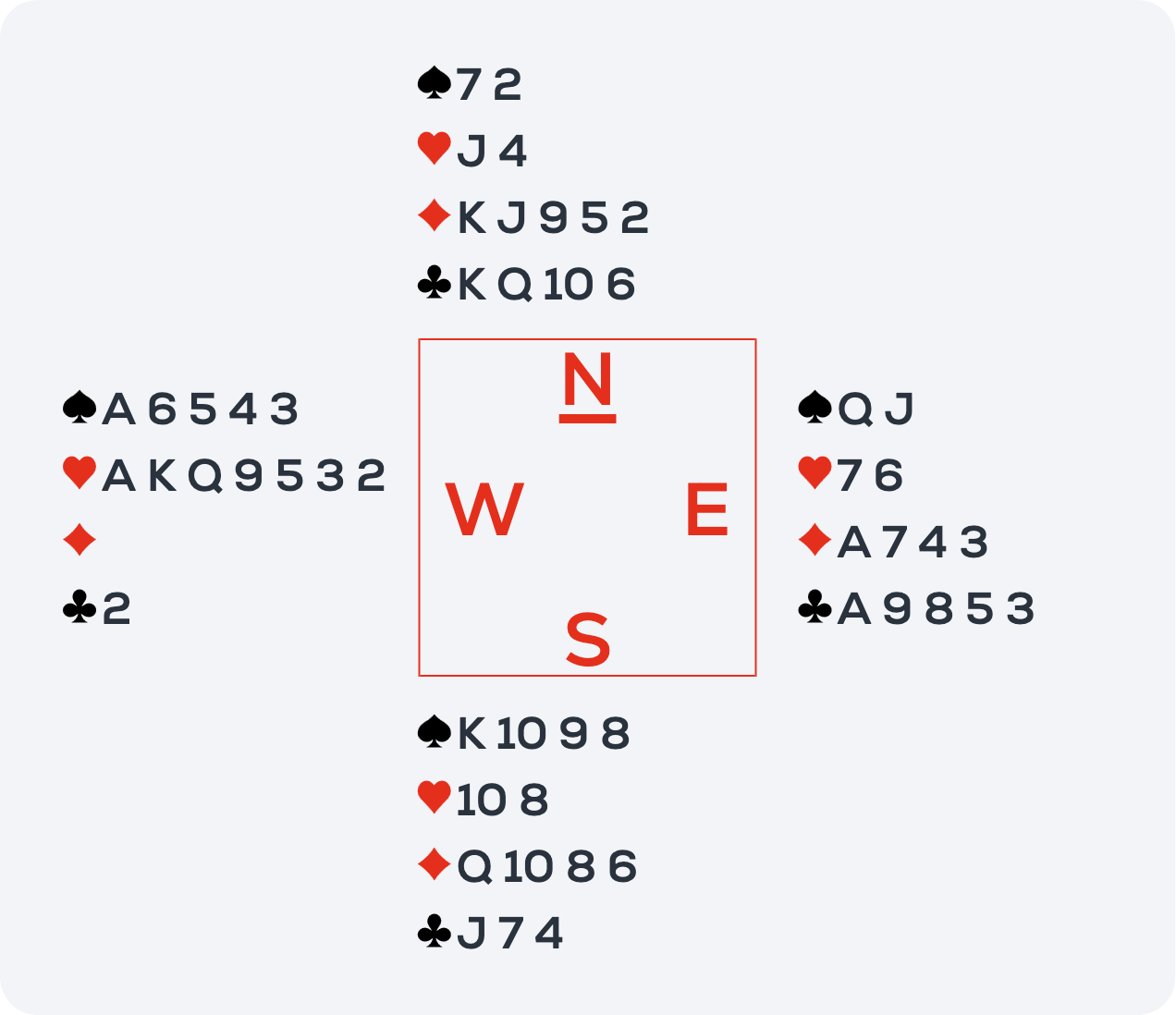
Open Room
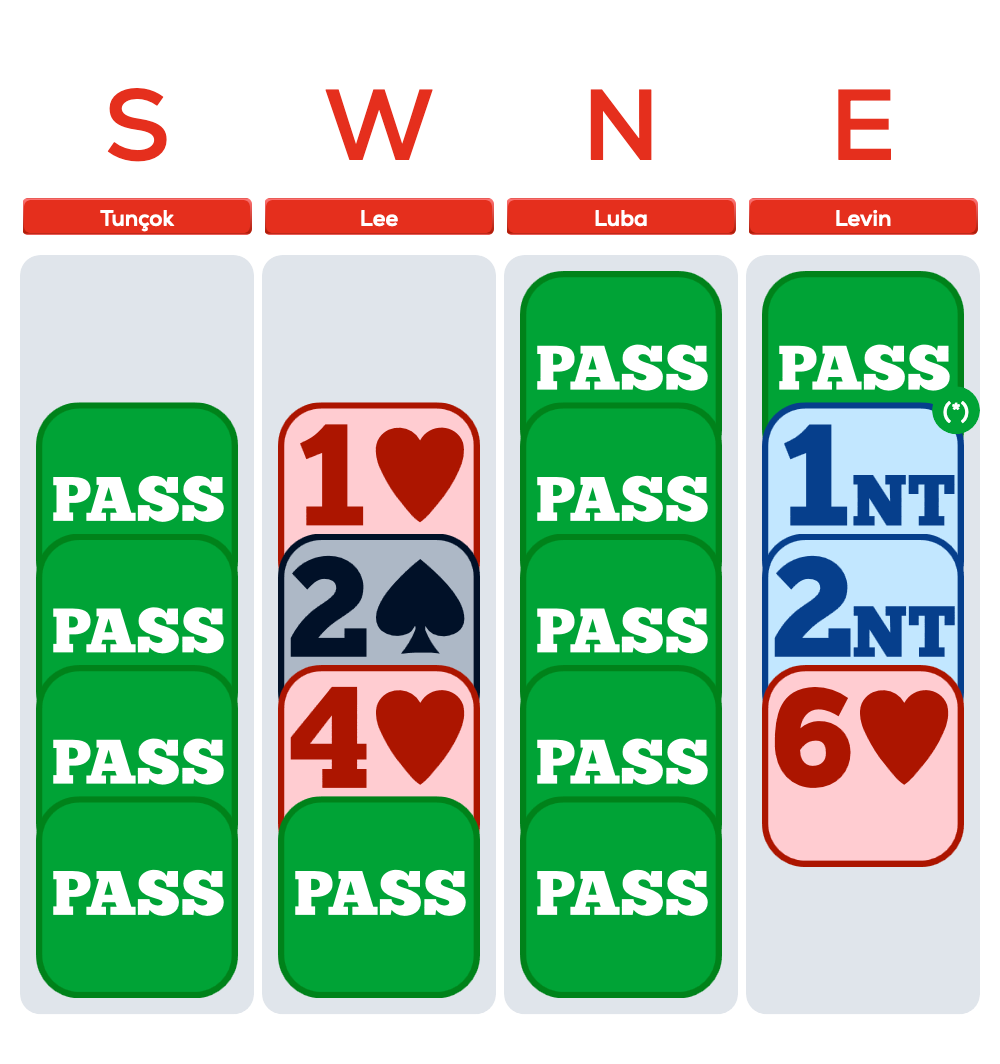
North led the ♣K and declarer took dummy’s ♣A and played the ♠Q for the king and ace. A spade to the jack was followed by a diamond ruff and a spade, North ruffing with the ♥J. That was the only trick for the defense, +1430.
Closed Room
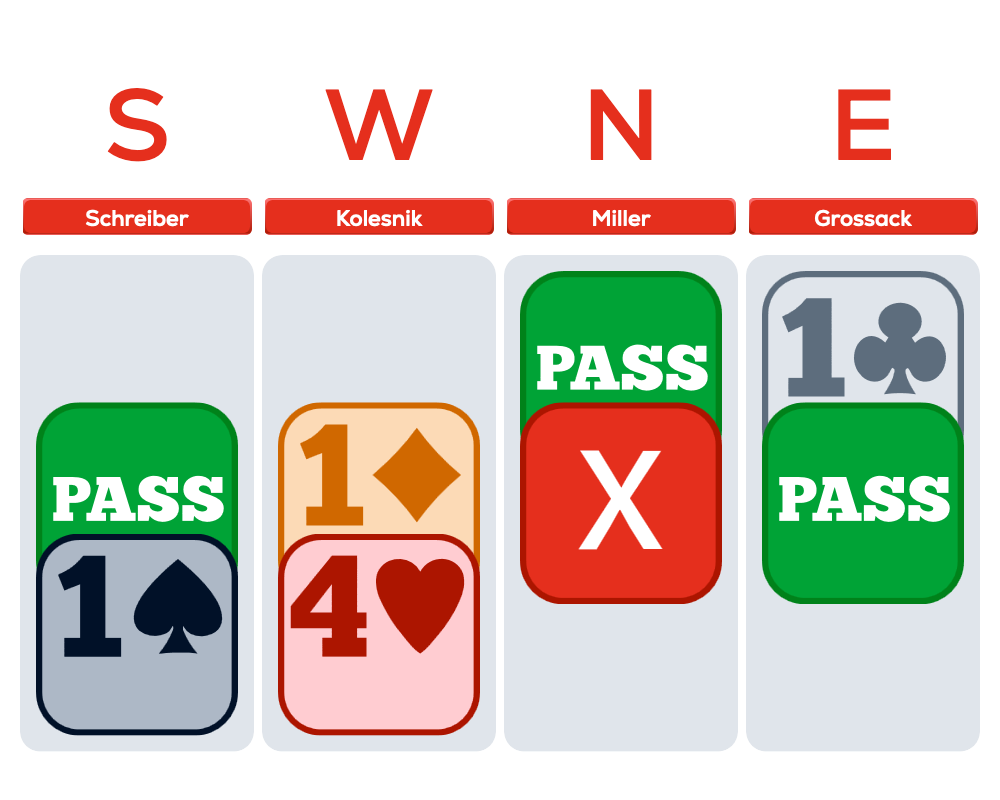
North led the ♠7 and declarer took South’s ♠K and drew trumps, finishing with 12 tricks when South pitched a spade, +480, but a 13 IMP loss.
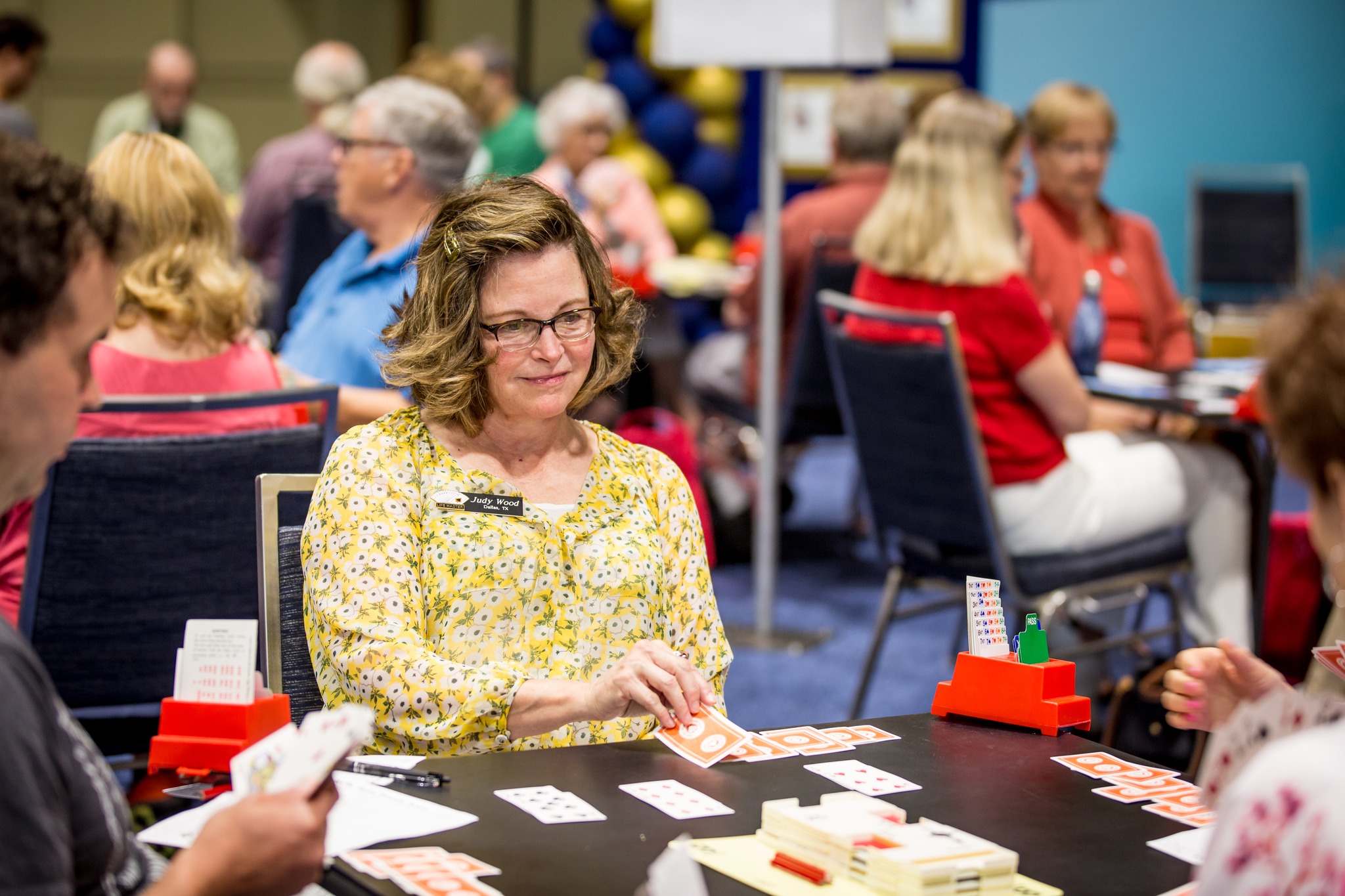
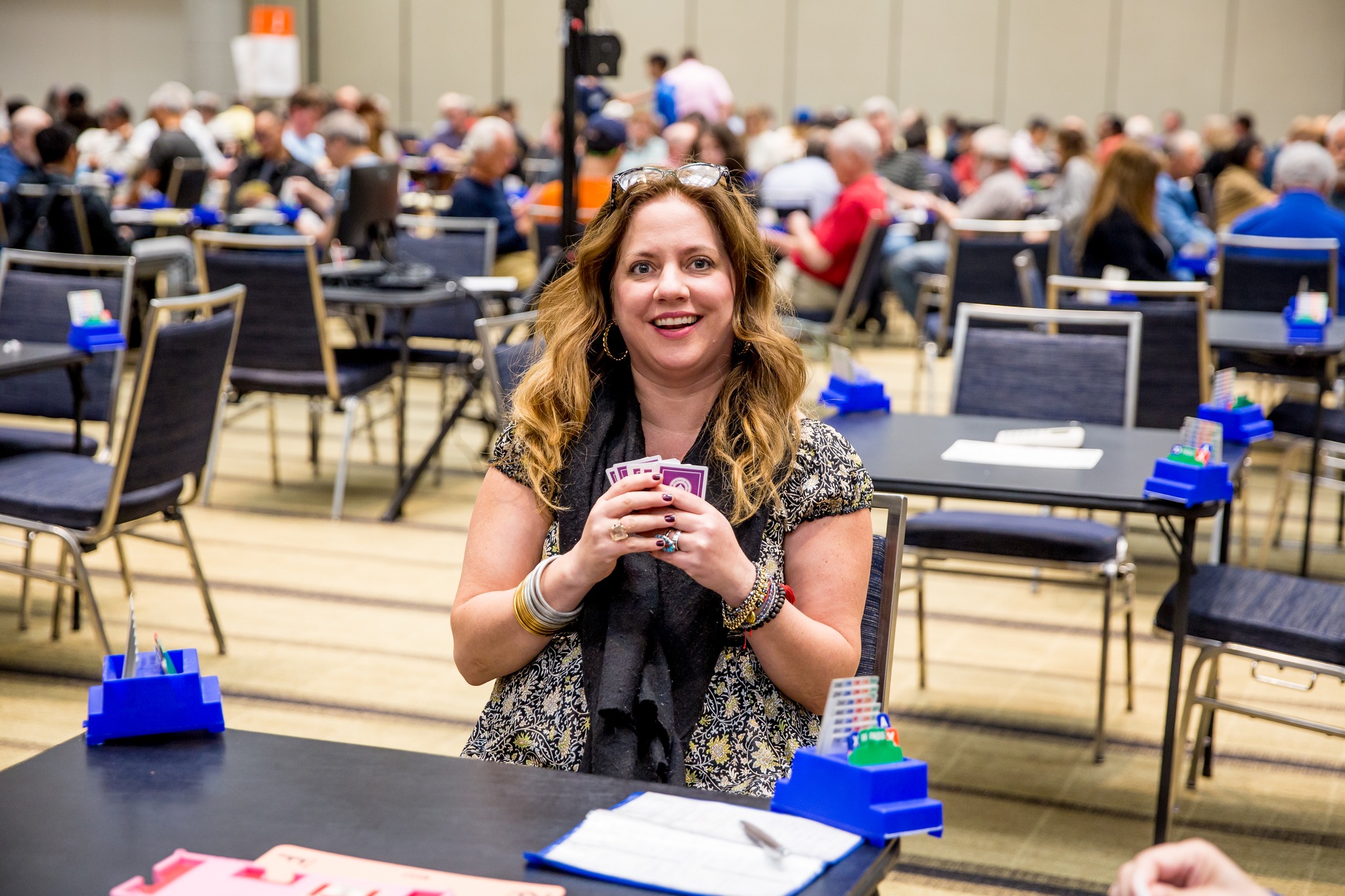
Board 32. Dealer East. N/S Vul.
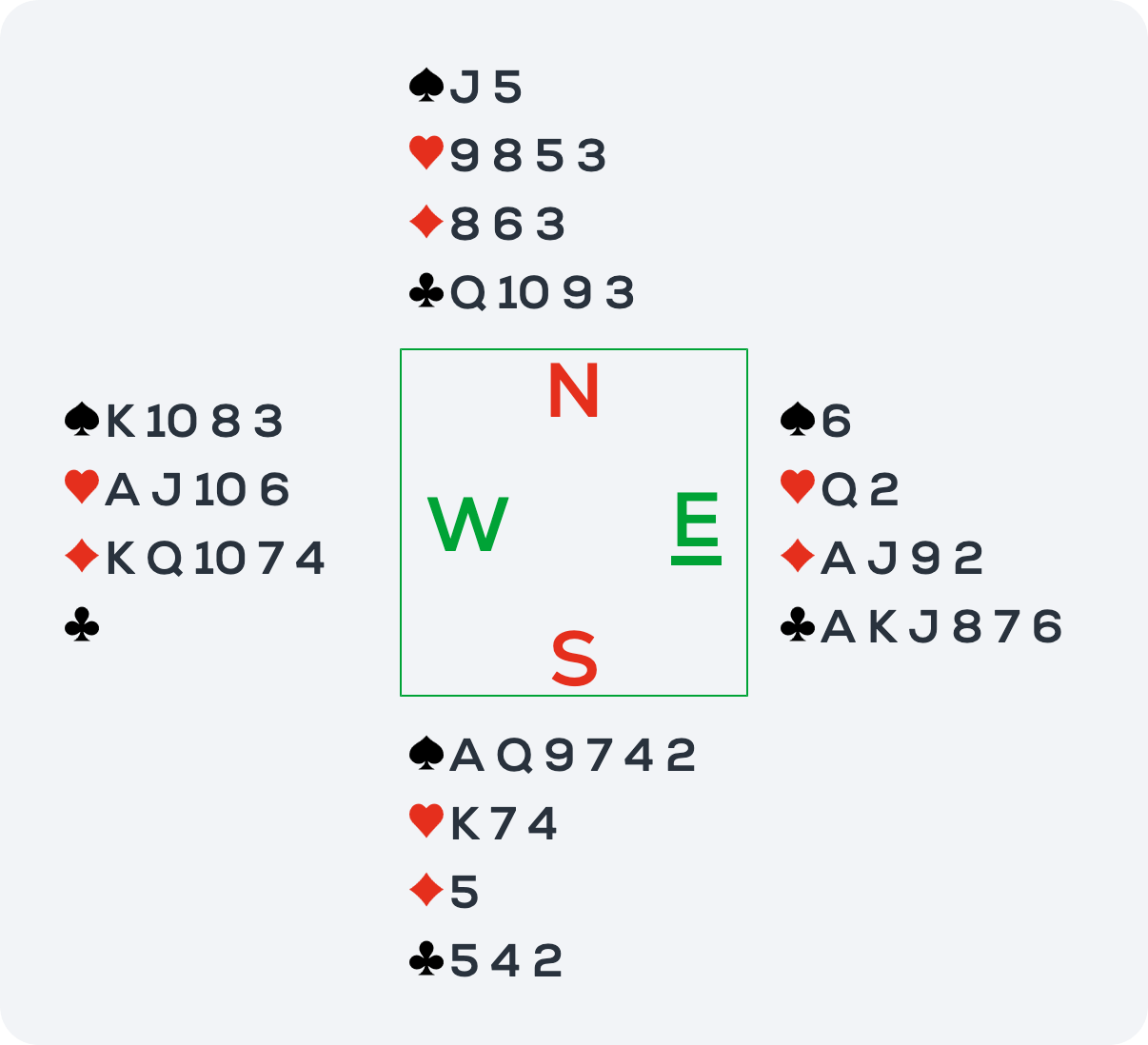
Open Room
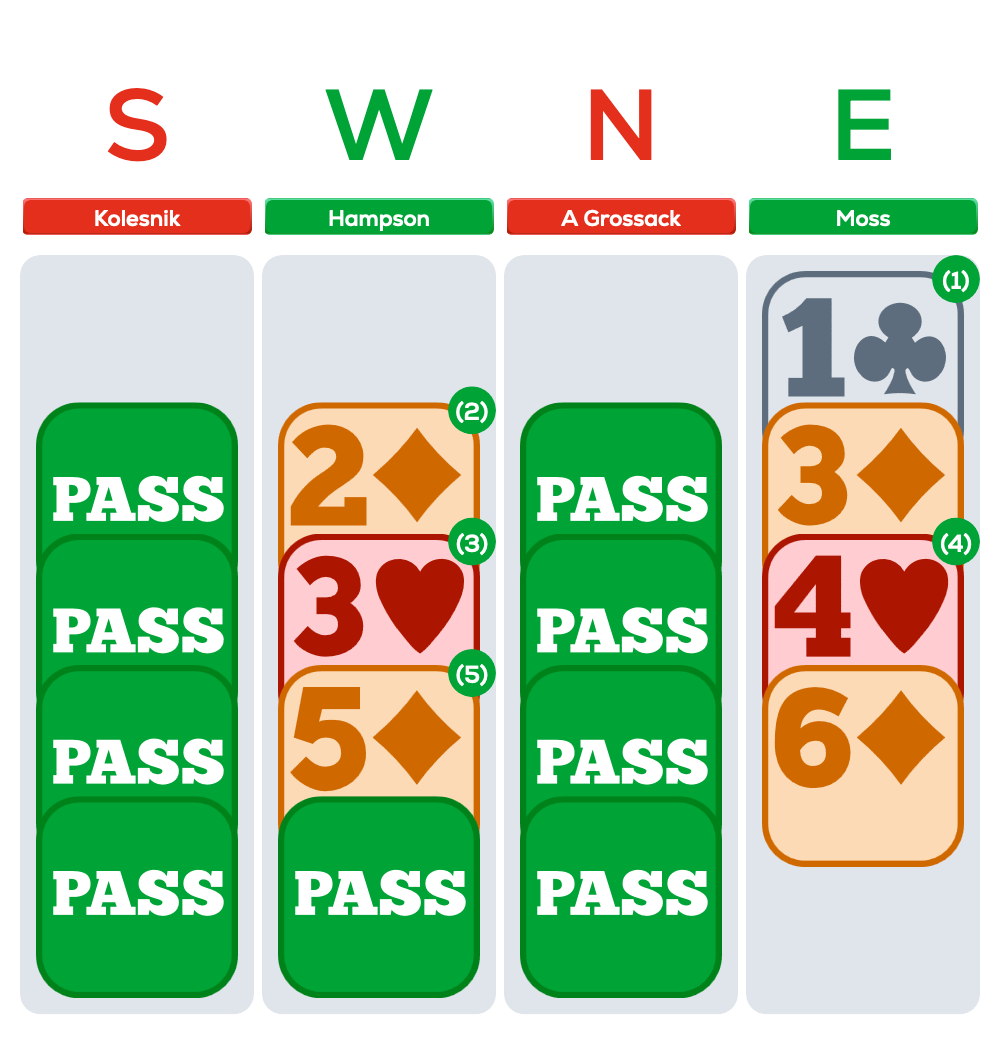
(2) 5+♦, game forcing
(3) Control
(4) RKCB
(5) 2 keycards + ♦Q
North led the ♣10 and when dummy’s ♣J held declarer ruffed a club high, drew trumps ending in dummy, pitched four spades on clubs and played the ♥Q, +940.
Closed Room
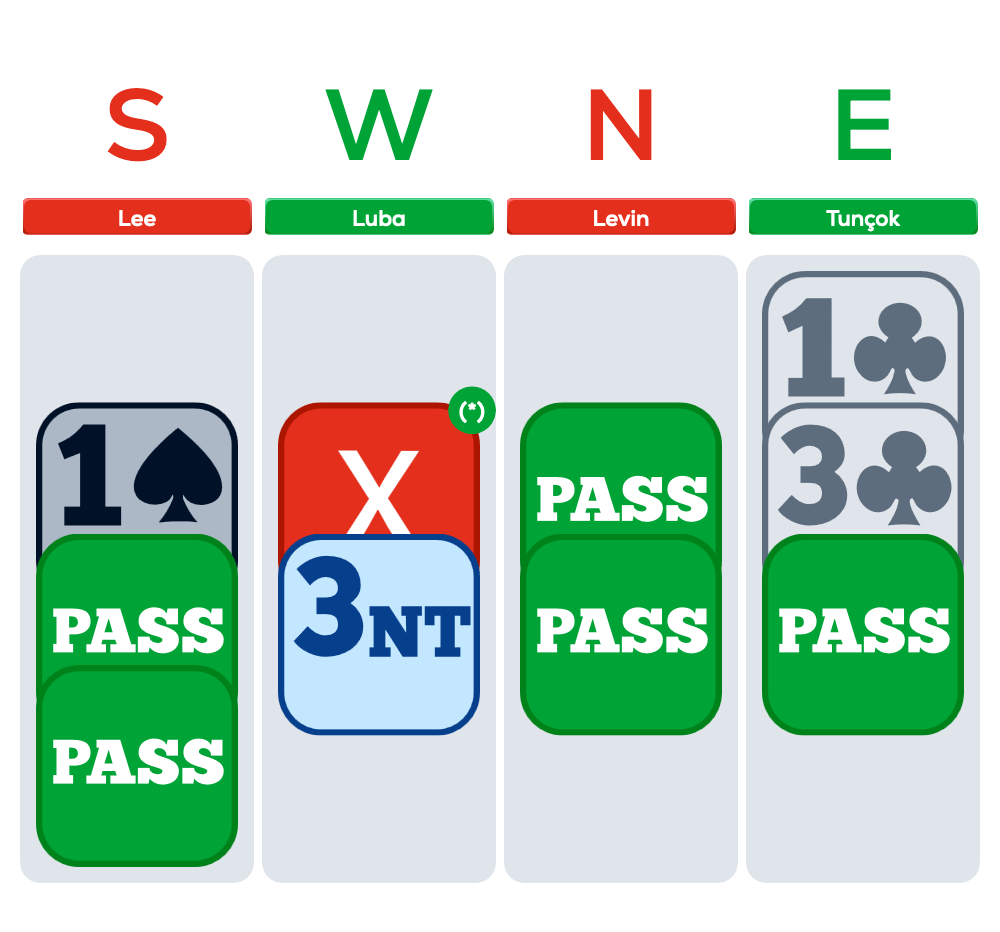
North led the ♠J and declarer won with the ♠K, crossed to dummy with the ♦J and played the ♥2 to the jack, finishing with 11 tricks but losing 10 IMPs.
Do you think West might have rebid 3♦?
Board 43. Dealer North. All Vul.
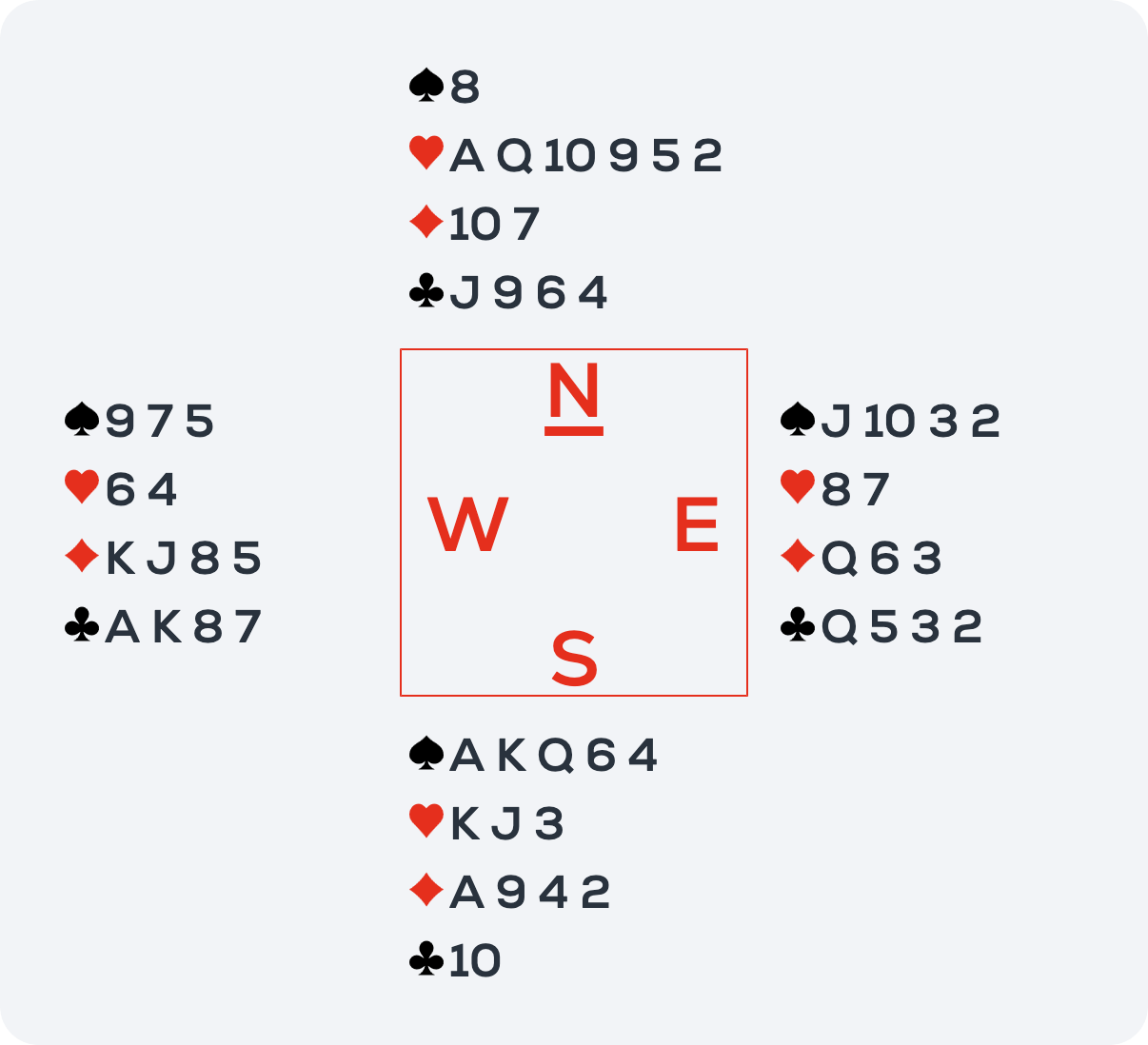
Open Room
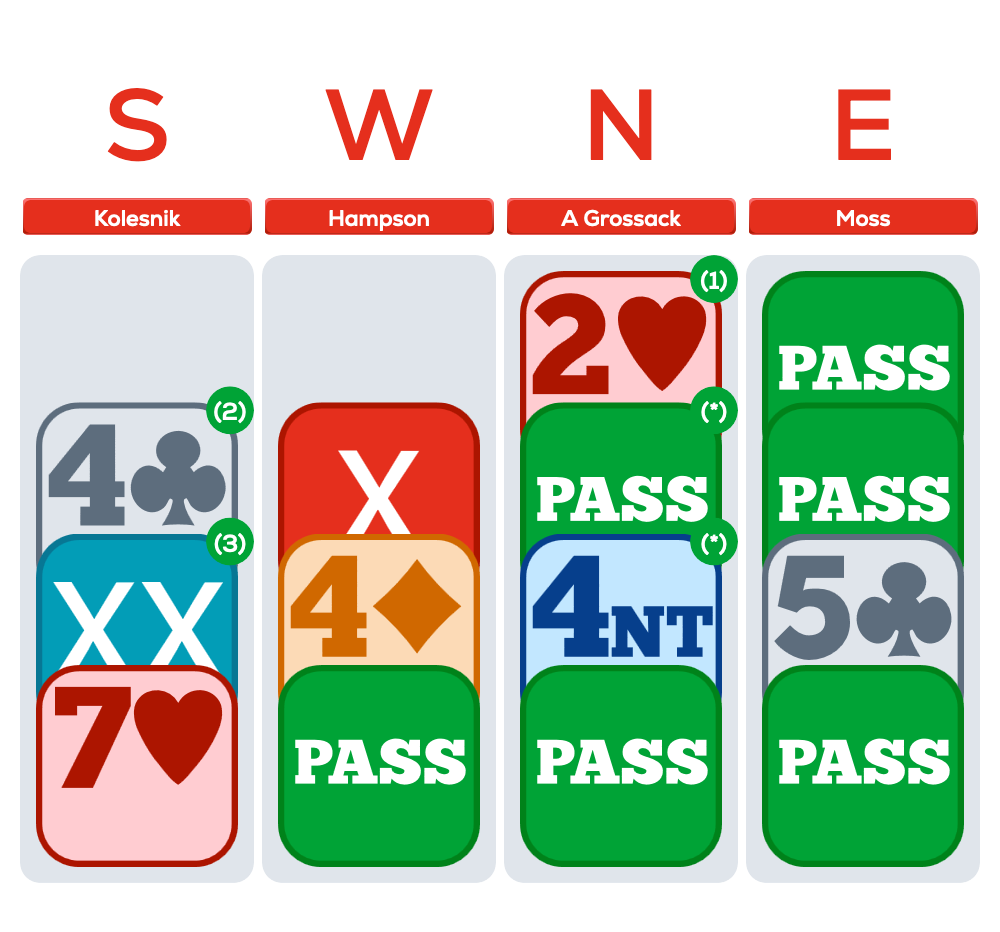
(2) RKCB
(3) Re asking
This all seems very odd – could North have two aces and a heart suit headed by the AQ? Why did West bid 4♦ or East 5♣? (The defenders can take the first eight tricks against a club contract.)
The convention card I found says D1P2 over intervention, with DEPO if three steps or more.
East led the ♣3 and that was one down, -100.
Closed Room
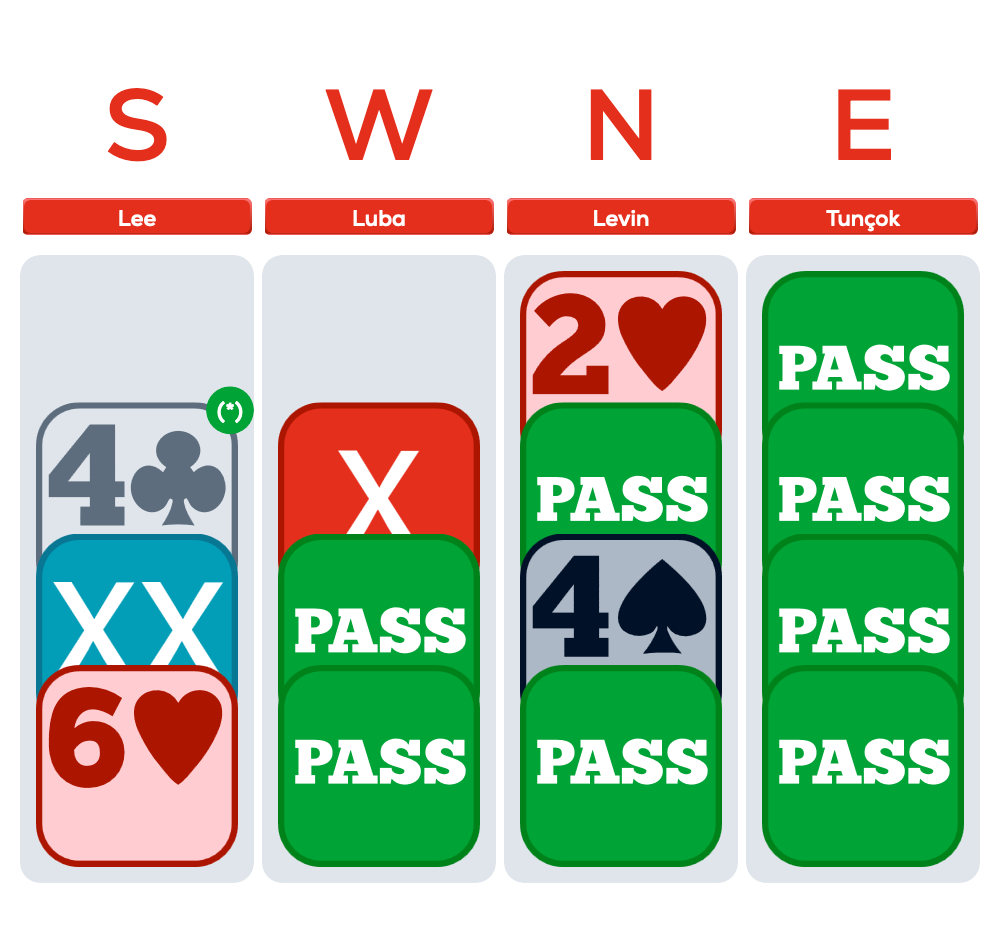
I have no ideas to the precise meaning of 4♣, Pass and Redouble, but the bottom line was a 17 IMP swing.
Given that team Schreiber team won 127-122, you can see how important these three deals were.

Photo by permission of the ACBL and Francesca Canali
The NABC is not only about playing Bridge:
Thursday evening, the ACBL Bridge Hall of Fame welcomed its newest Open Award inductees: Steve Garner, Janice Seamon-Molson, and the late Justin Lall. Mike Levine was honoured with the Blackwood Award, while Barbara Brier and Bjorn Fallenius (both posthumously) received the von Zedtwitz Award. Andrew Rosenthal was awarded the Sidney H. Lazard Jr. Sportsmanship Award.

Von Zedtwitz Life Master Pairs: Third Time’s a Charm
Having suffered the misfortune to finish second in NABC Pairs Championships (the 2021 Kaplan Blue Ribbon Pairs and the 2024 Norman Kay Platinum Pairs), Israel’s Ami Zamir and Oren Toledano broke their duck by winning the von Zedtwitz Life Master Pairs, a three-day event, giving them both their first victory at the Nationals. They held off the runners up, France’s Jérôme and Léo Rombaut by almost a top.

Photo by permission of the ACBL and Francesca Canali
This explosive deal is from the second session of the final:
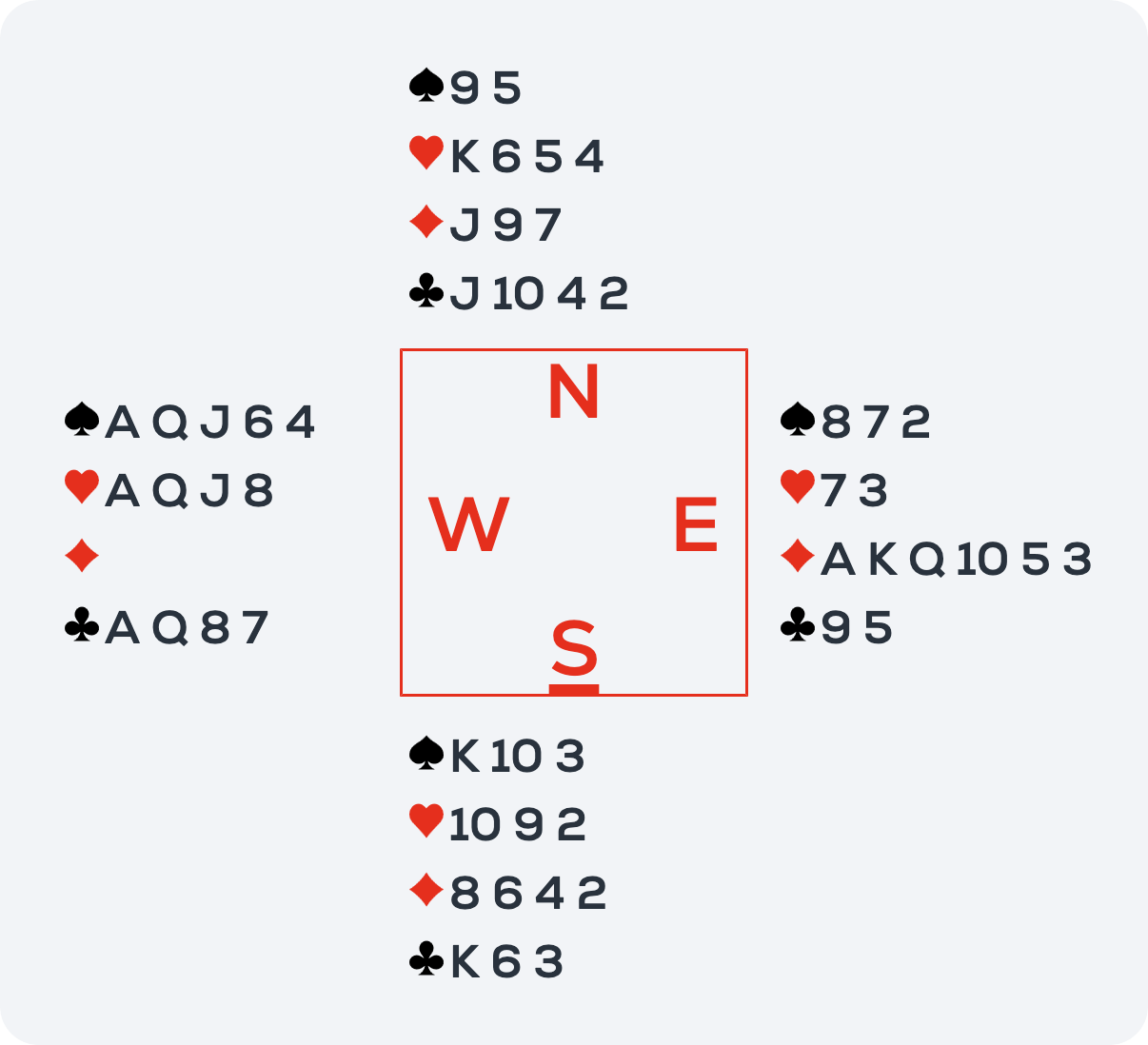
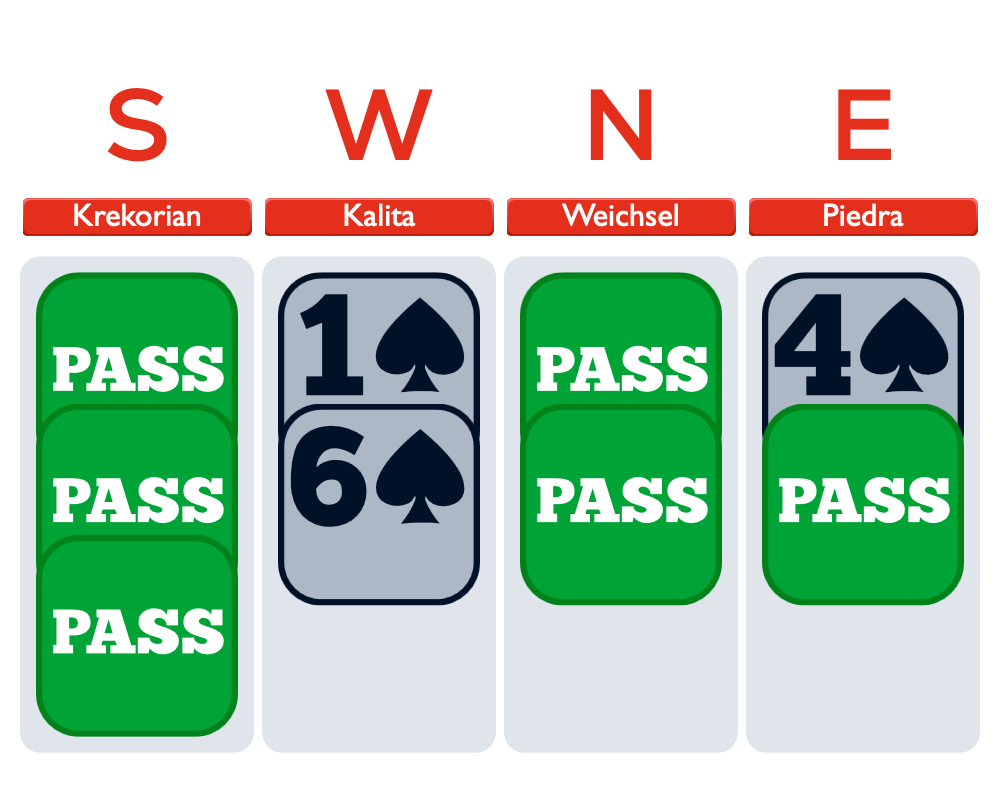
When a player jumps to slam in this situation, it is frequently indicative of a distributional hand, strongly suggesting possession of an undisclosed void.
With little else to go on North led the ♠5 for the two, ten and jack.
Needing to reach dummy, declarer continued with the ♥J. Appreciating what was going on, North withheld the ♥K(!) but declarer continued with the ♥A, ruffed a heart, pitched three clubs on the top diamonds and then played a spade to the queen for 12 tricks and 30-3 matchpoints.
Although many pairs bid 6 Spades, the vast majority went down.
If North leads a diamond and declarer discards three clubs, it is then necessary to guess which major suit to finesse in. If you decide that North might equally have led a heart from a worthless holding then you might take the right view of finessing in spades.
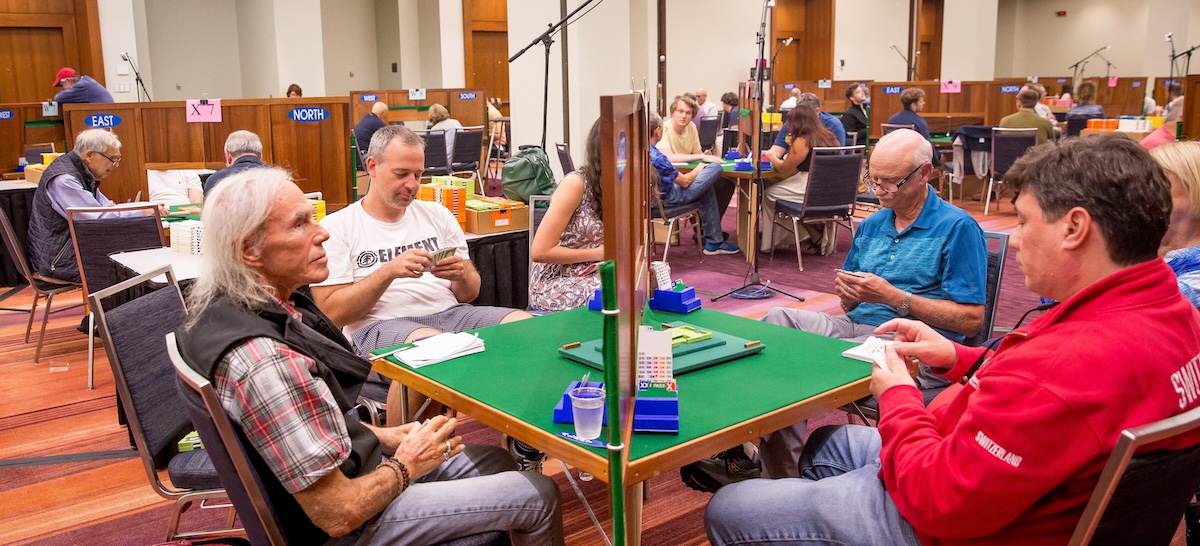
Photo by permission of the ACBL and Francesca Canali
Toronto Round-Up
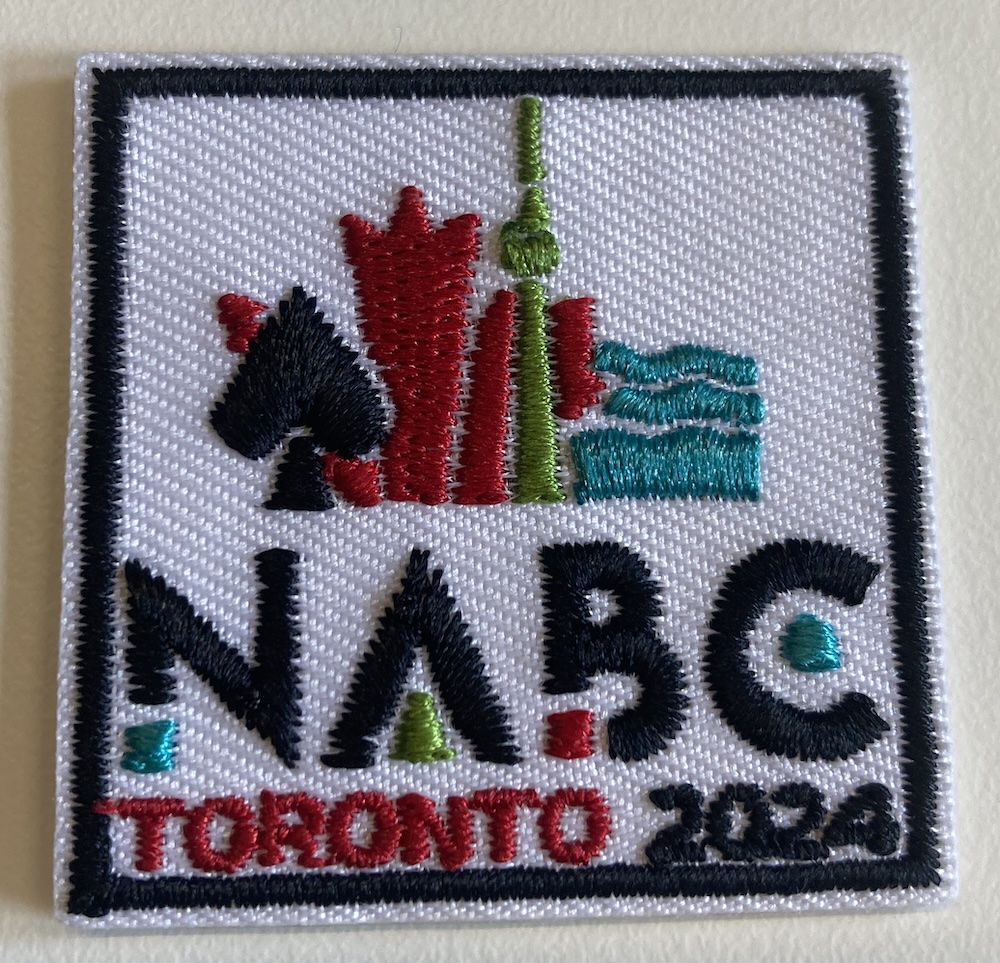
Aside from the showpiece events, there are many more important Championships at the Summer Nationals.
Wernher Open Pairs
The Wernher Open Pairs saw Mark Itabashi and Neil Silverman climb all the way from 56th to first in the two-session final. It was a sixth NABC+ win for Silverman and an eighth for Itabashi, the partnership having previously won the Silodor Open Pairs in 2022.
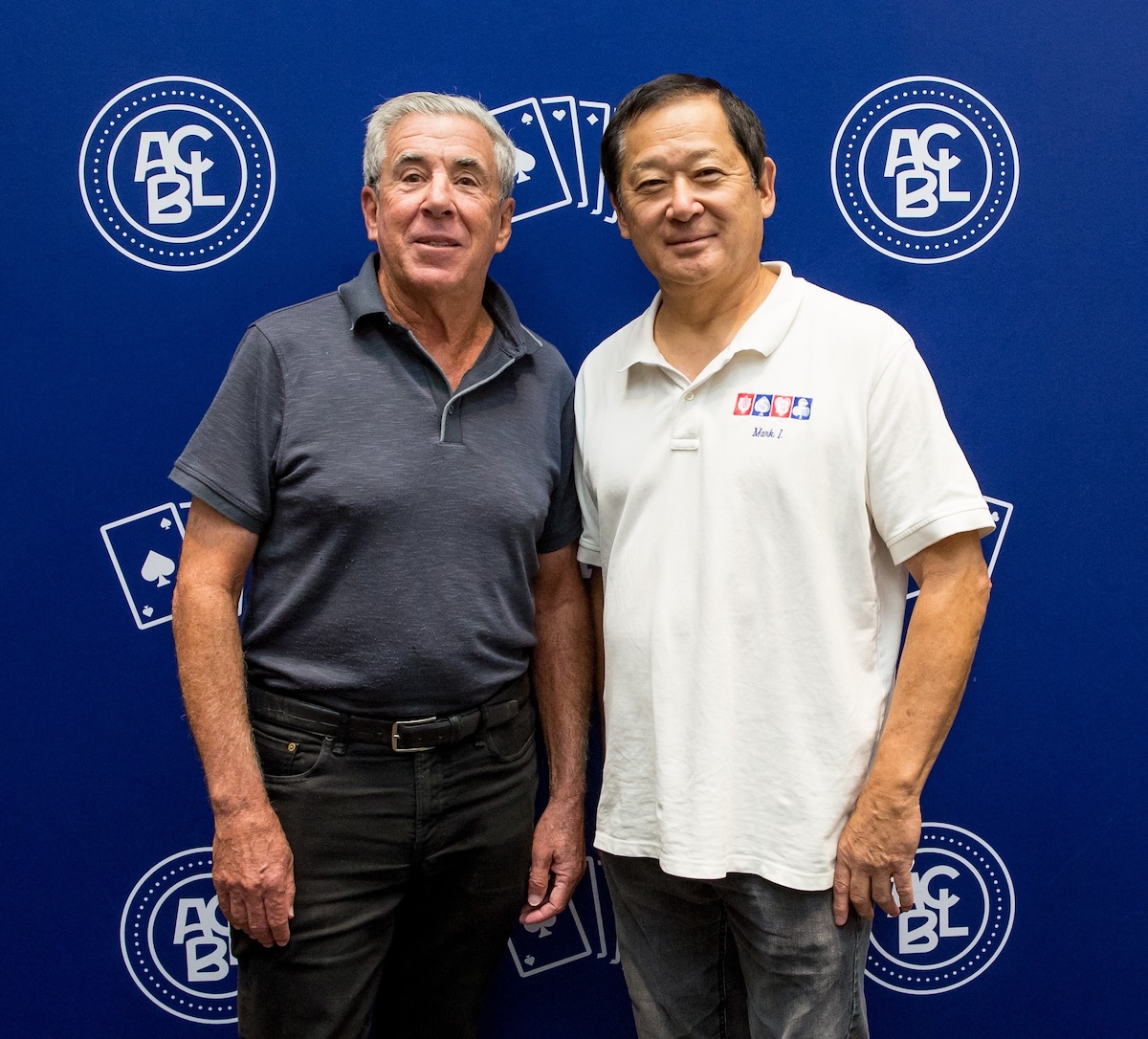
Photo by permission of the ACBL and Francesca Canali
This deal, reported by Brian Glubock, shows a frequently overlooked idea that can come to declarer’s rescue:
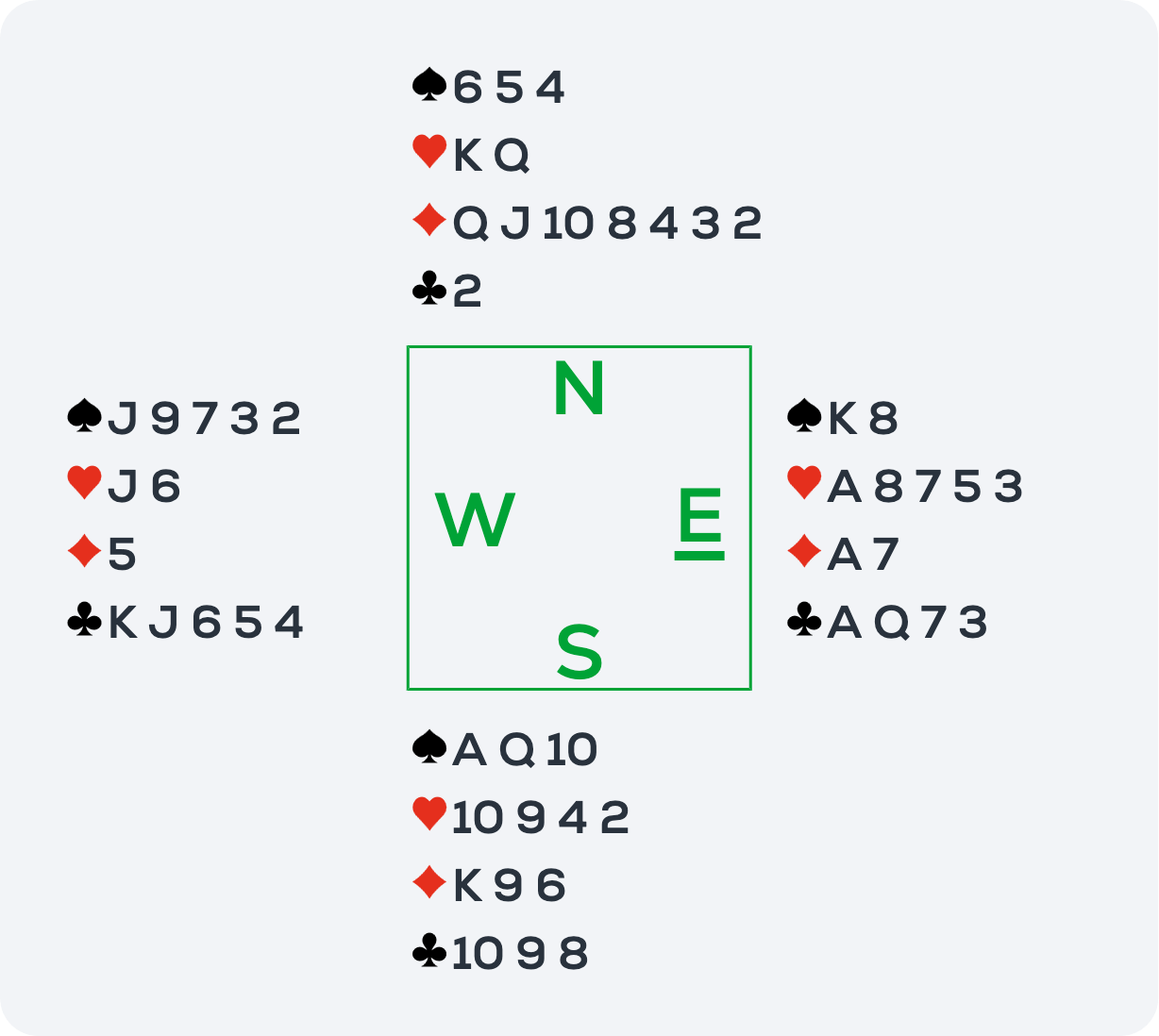
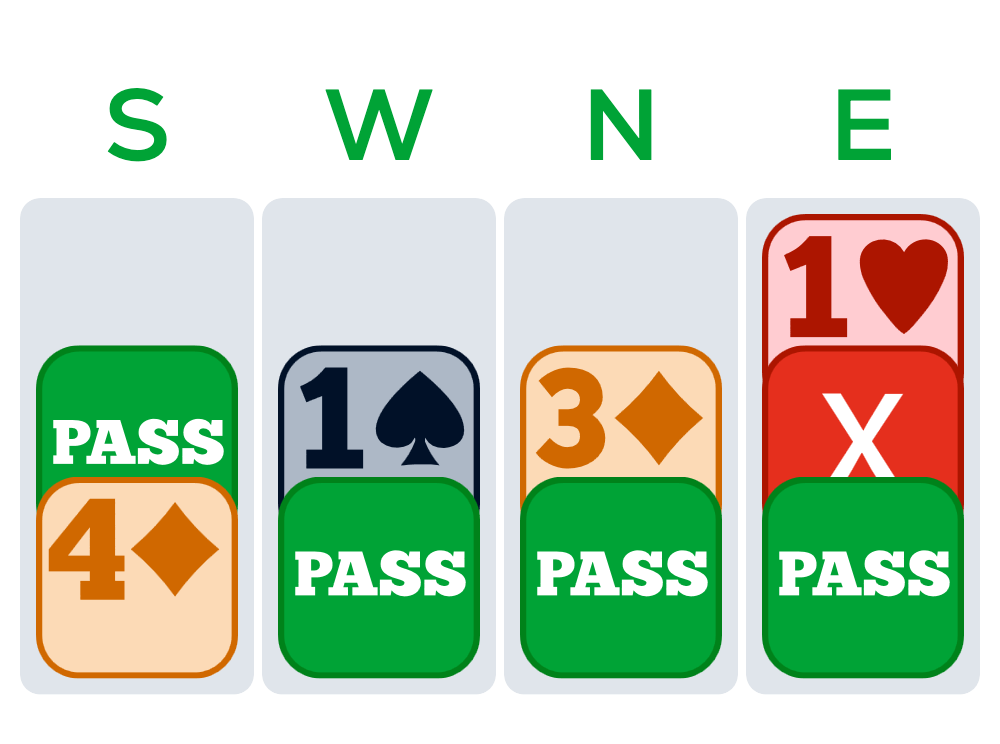
When East leads the ♠K, if declarer wins and plays a diamond East takes the ♦A and plays a second spade. Declarer wins, draws trump and plays a heart, but East can win and play a low club allowing West to win and cash the ♠J for one down.
To avoid this, declarer must play a club at trick two!
This removes West’s potential entry, and thanks to the early appearance of the ♥J declarer will be able to dispose of the losing spade.
This communication-destroying manoeuvre is known as a ‘Scissor’s Coup’.
Freeman Mixed Board-a-Match Teams
The Freeman Mixed Board-a-Match Teams title was captured by Kevin Dwyer Rimstedt, Cecilia Dwyer Rimstedt, Shan Huang and Sandra Rimstedt. Joyce Hill was their non-playing captain. Their total of 36.00 was just enough to pip Gillian Miniter’s Roger Lee, Migry Zur Campanile, Eldad Ginossar and Ida Groenkvist – they finished with a total of 35.75.

Photo by permission of the ACBL and Francesca Canali
On this deal, reported by Jenni Carmichael, declarer missed an opportunity:
Board 27. Dealer South. None Vul.
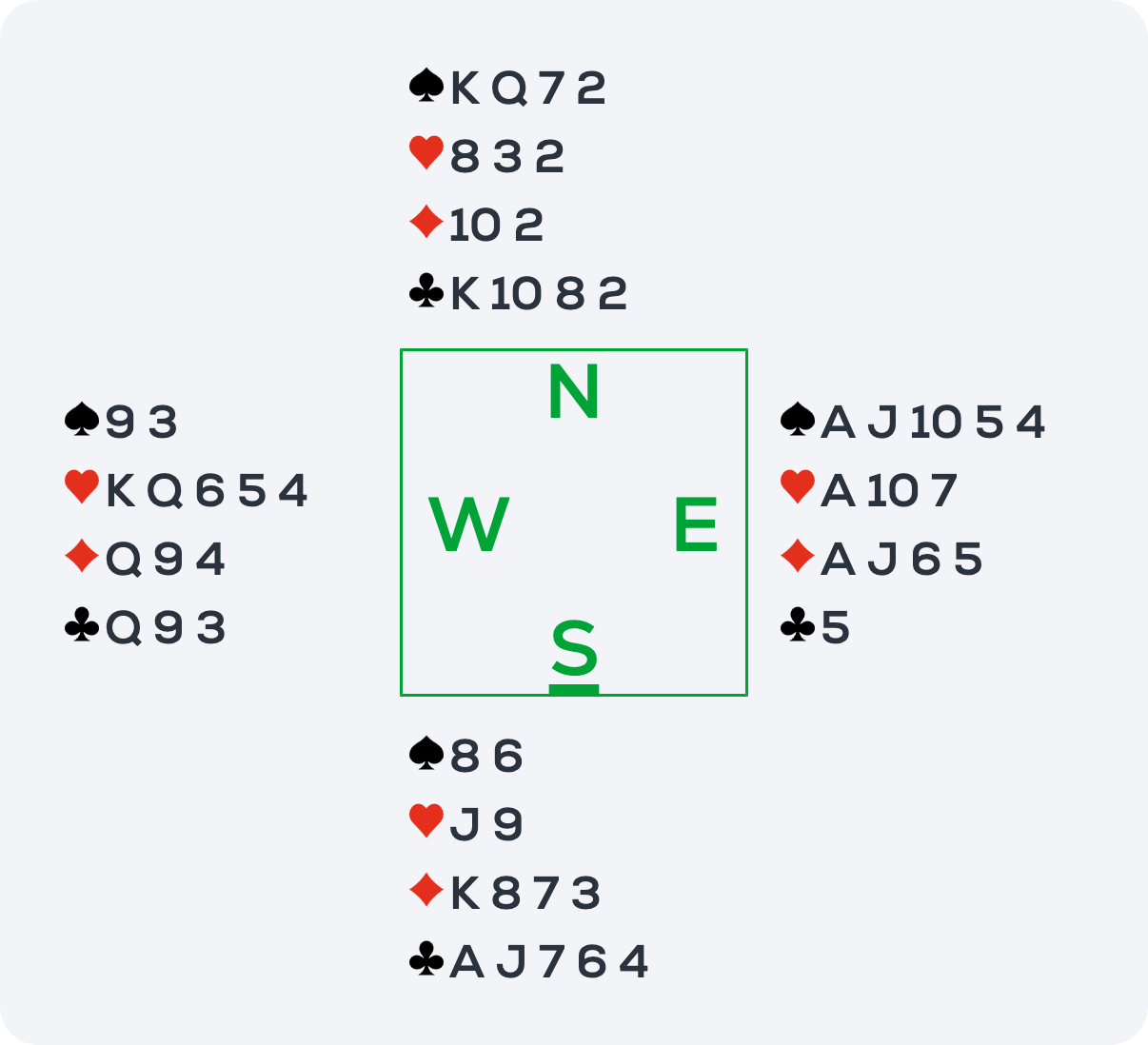
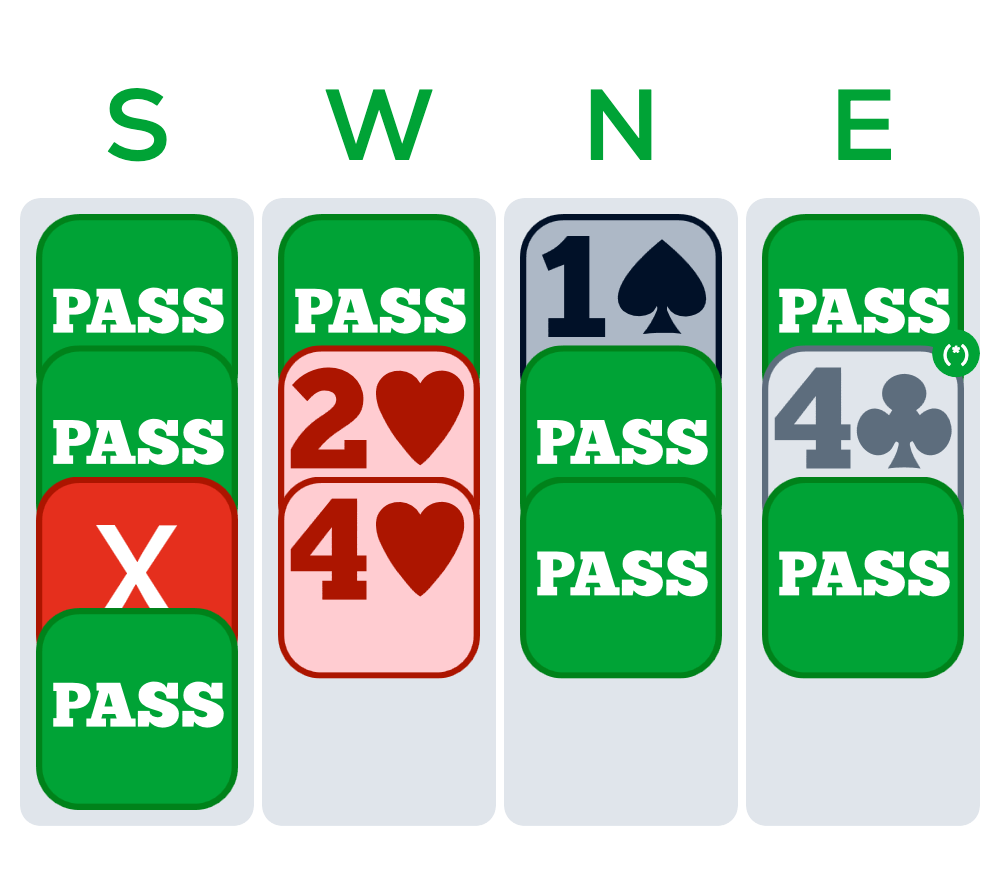
South’s lead-directing opening was easily brushed aside.
She led the ♥2 and declarer won with the ♥Q and played the ♠3 for the queen and ace followed by a spade for the nine and king. After cashing the ♣K, North exited with a spade, South ruffing with the ♥J and being overruffed by declarer. When declarer played a diamond to the jack, South won and played the ♣A. That forced dummy to ruff, ensuring a trick for North’s ♥8.
Declarer could have ensured the contract (and a winning board) by drawing trumps ending in dummy, discarding his losing clubs on the spades and giving up a diamond.
Wagar Women’s Pairs
Marjorie Michelin and Kismet Fung won the four-session Wagar Women’s Pairs by a narrow margin from Margie Cole and Sandra Rimstedt. This is the third NABC win for Michelin, but a first for Fung. The pair owed their victory to a 65% score in the final session.
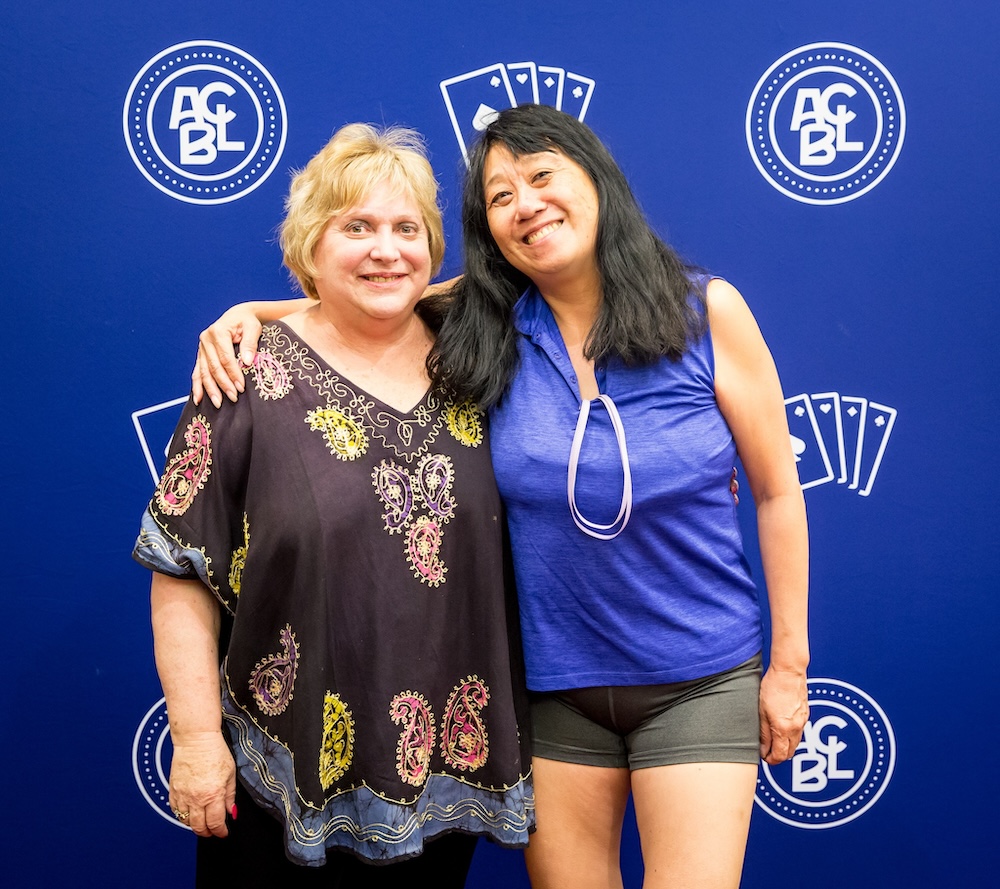
Photo by permission of the ACBL and Francesca Canali
This deal presented a tough defensive problem:
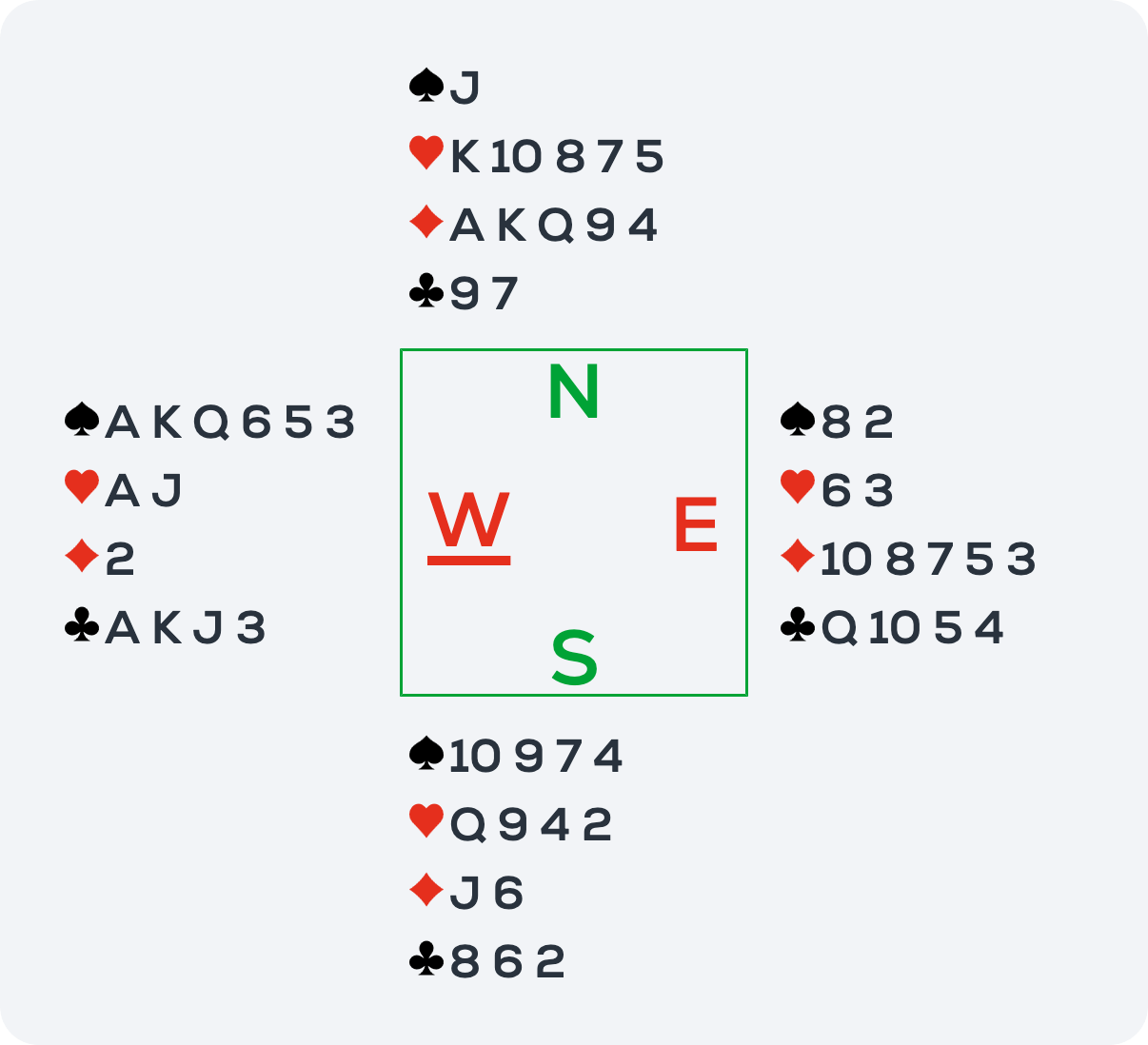
Contract: 6 Clubs by West.
If you are North, having shown a red two-suiter and defending a contract of 6 Clubs, you need to be careful. After cashing a diamond, you need to switch to a heart. If you try to cash a second diamond, declarer ruffs, cashes the ♣A, overtakes the ♣J with dummy’s ♣Q, ruffs another diamond and then cashes the ♠AK. When North cannot ruff, declarer ruffs a spade, draws the outstanding trump discarding the ♥J and crosses to dummy’s ♥A to enjoy the remaining spades.
Truscott/USPC Senior Swiss Teams
The Truscott/USPC Senior Swiss Teams went to Barry Bragin’s Mark Laken, Robert Cappelli and Mark Aquino. For Bragin, Laken and Cappelli, it was a first NABC+ win, enough for Capelli to become a Grand Life Master with the win.
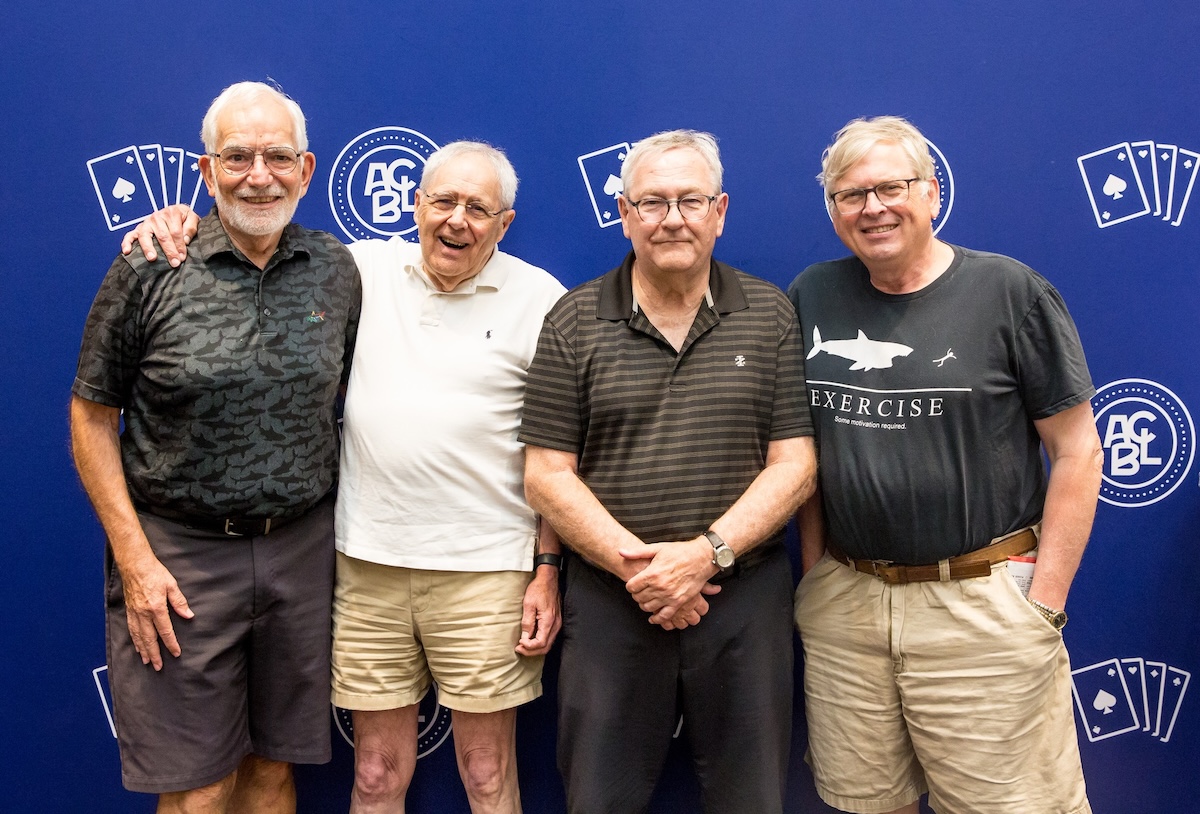
Photo by permission of the ACBL and Francesca Canali
Roth Open Swiss Teams
The team captained by Doug Simson were the winners of the Roth Open Swiss Teams
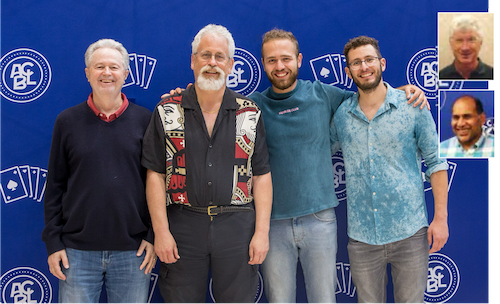
Photo by permission of the ACBL and Francesca Canali
The Spingold: Showcase Showdown
The centerpiece of the Summer Nationals is undoubtedly the Spingold, which is contested from the first Monday all the way through to the final Sunday. This year’s event saw the top seeded teams fall by the wayside. The holders, Fleisher, went out in the Round of 32, while perennial winners Nickell and the mighty Zimmermann were eliminated in the quarterfinals.
In the run-up to the final, which was between Street and Delimpaltadakis, this was perhaps the deal of the tournament:
When you have an abundance of high cards, it can be right to forget about playing in a suit, hoping to take the tricks you require based on power. You may never find a better example than this one from the last quarter of the semifinal between Leonardon and Street.
Board 48. Dealer East. N/S Vul.
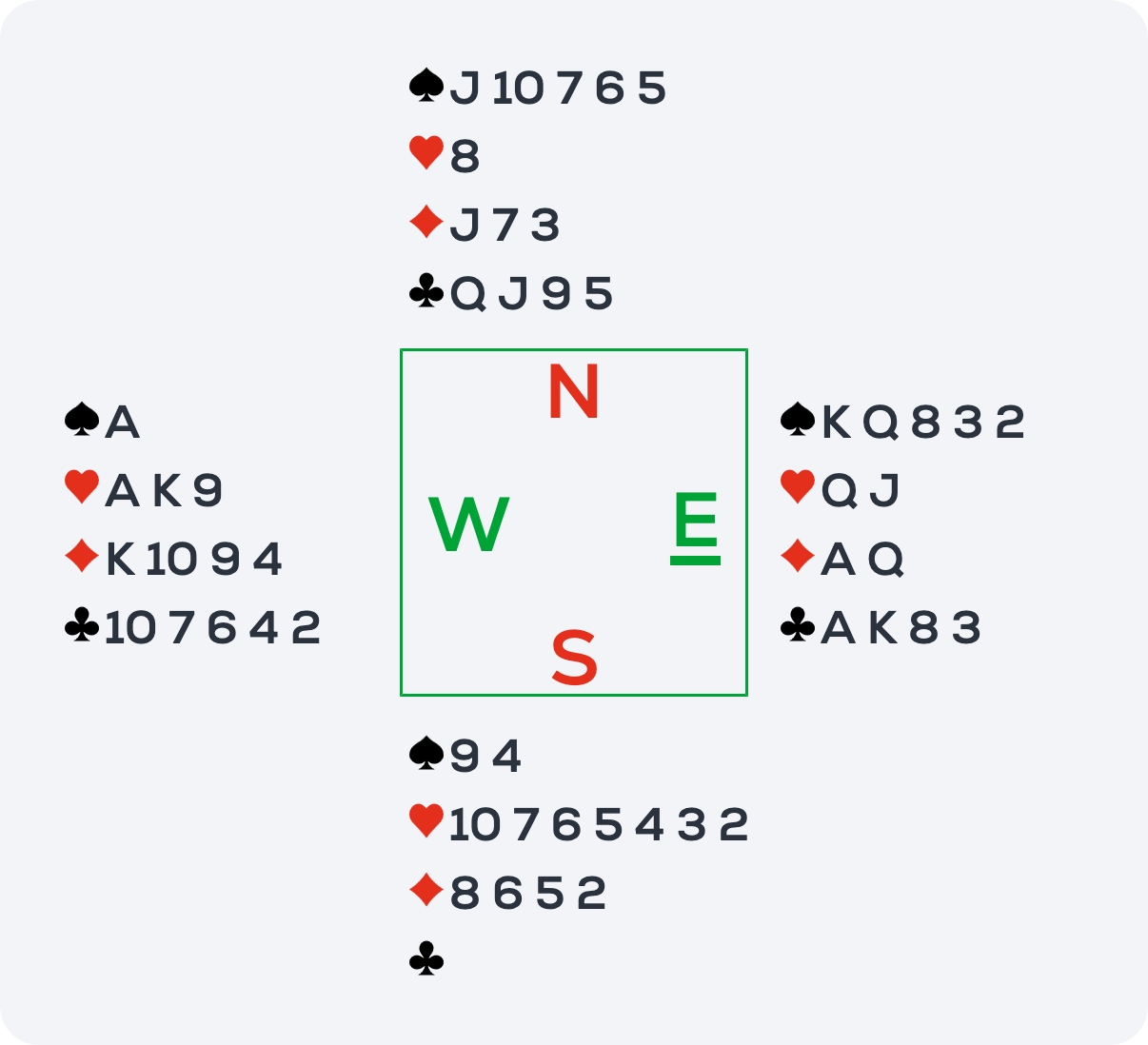
Open Room
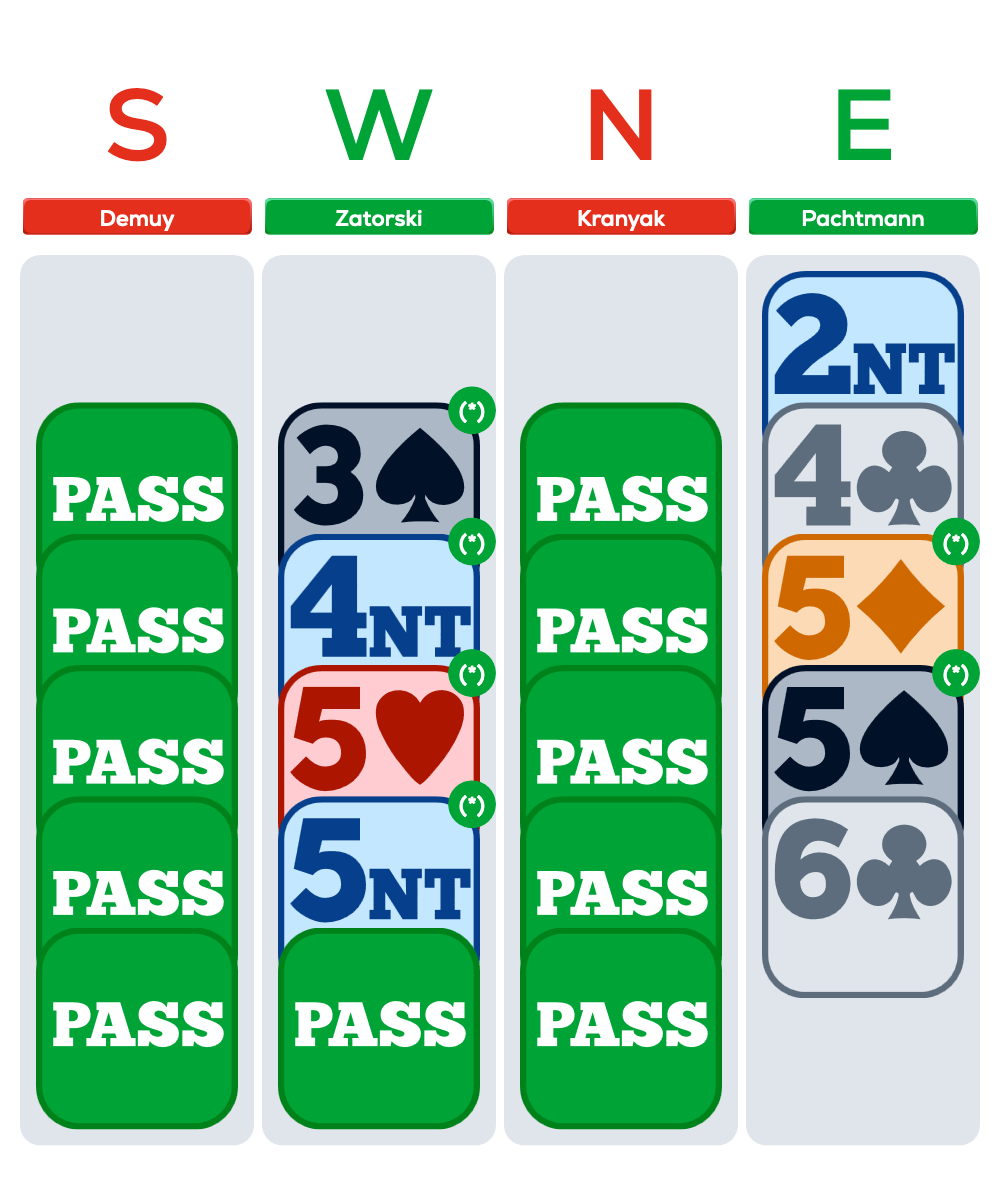
With clubs agreed, West asked for keycards and then discovered the ♣Q was missing.
South led the ♠9 and having won in dummy declarer played the ♣2. When North followed with the ♣5, declarer could have ensured his contract by playing the ♣8. When he played the ♣K and South discarded the ♥2, he could not avoid the loss of two trump tricks, -50.
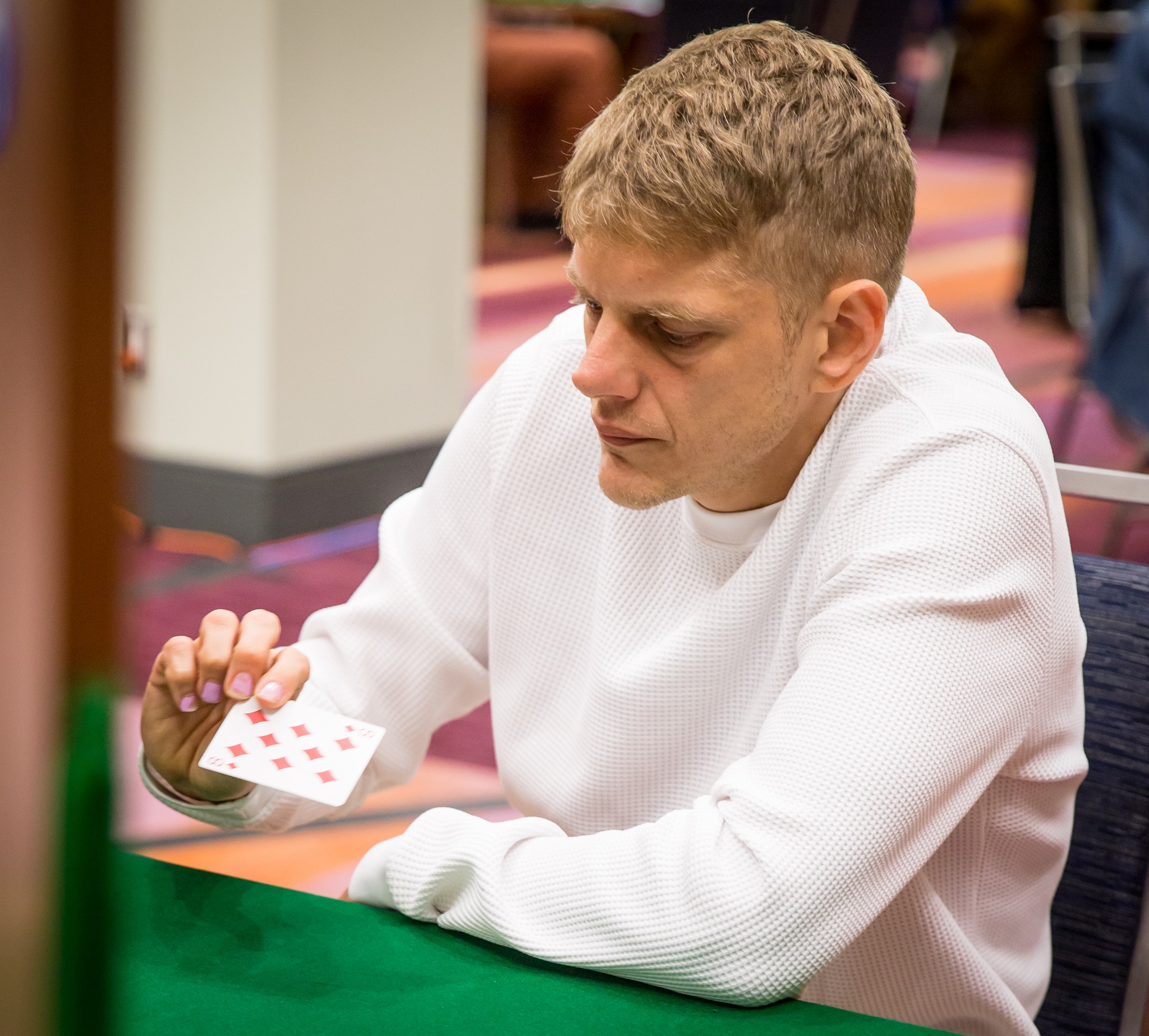
Photo by permission of the ACBL and Francesca Canali
Closed Room
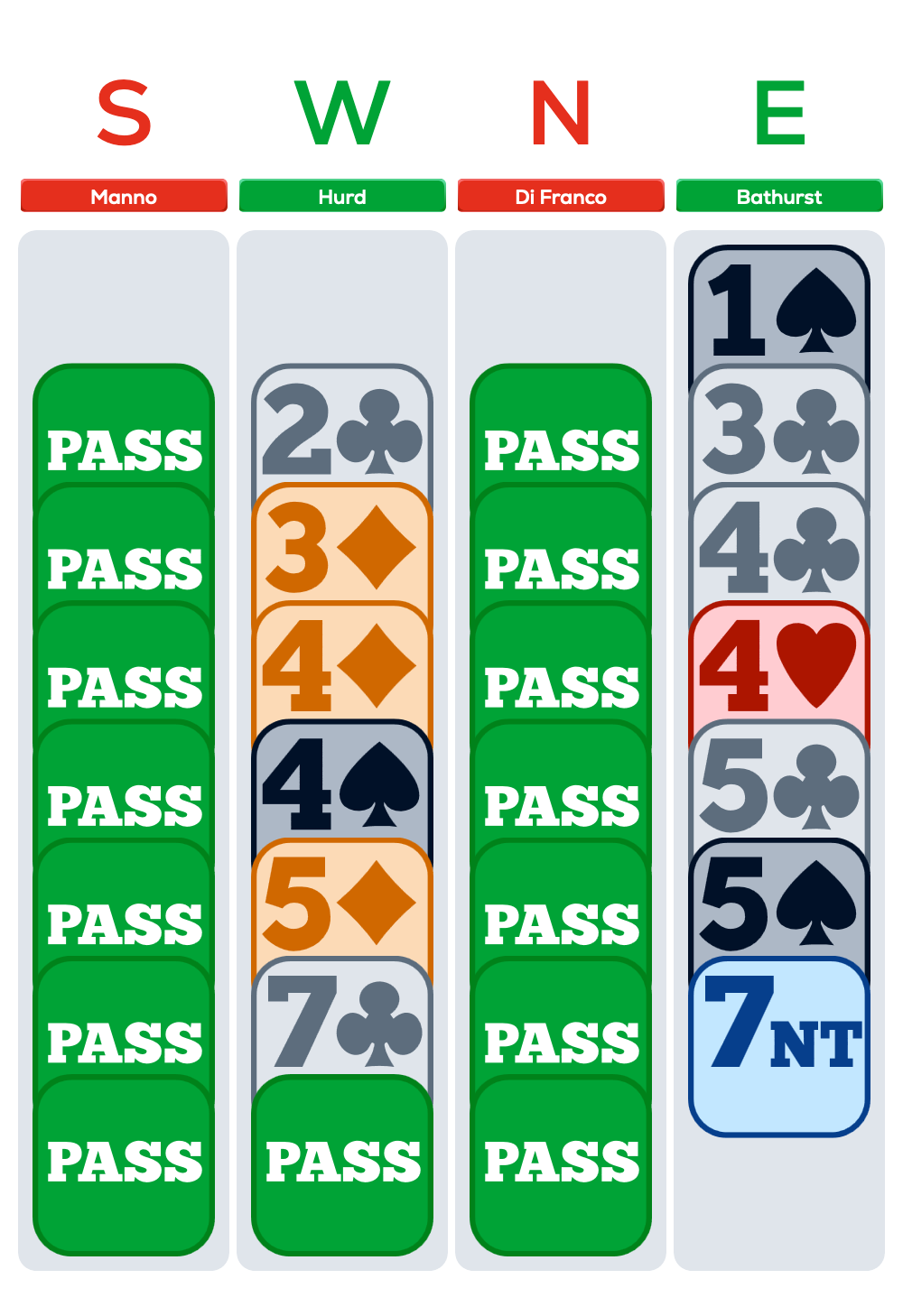
When West jumped to 7♣, East wisely removed to 7NT. South led the ♦5, and when declarer put in dummy’s ♦10, North covered with the ♦J. Having won, declarer unblocked the diamonds, crossed to dummy with the ♠A and cashed two diamonds discarding a club and a spade as North parted with the ♠5. Declarer’s next move was a club to the nine and ace and when South discarded the ♥7, declarer cashed the ♠KQ, discarding clubs from dummy.
When South pitched the ♥2, declarer knew that this was the position:
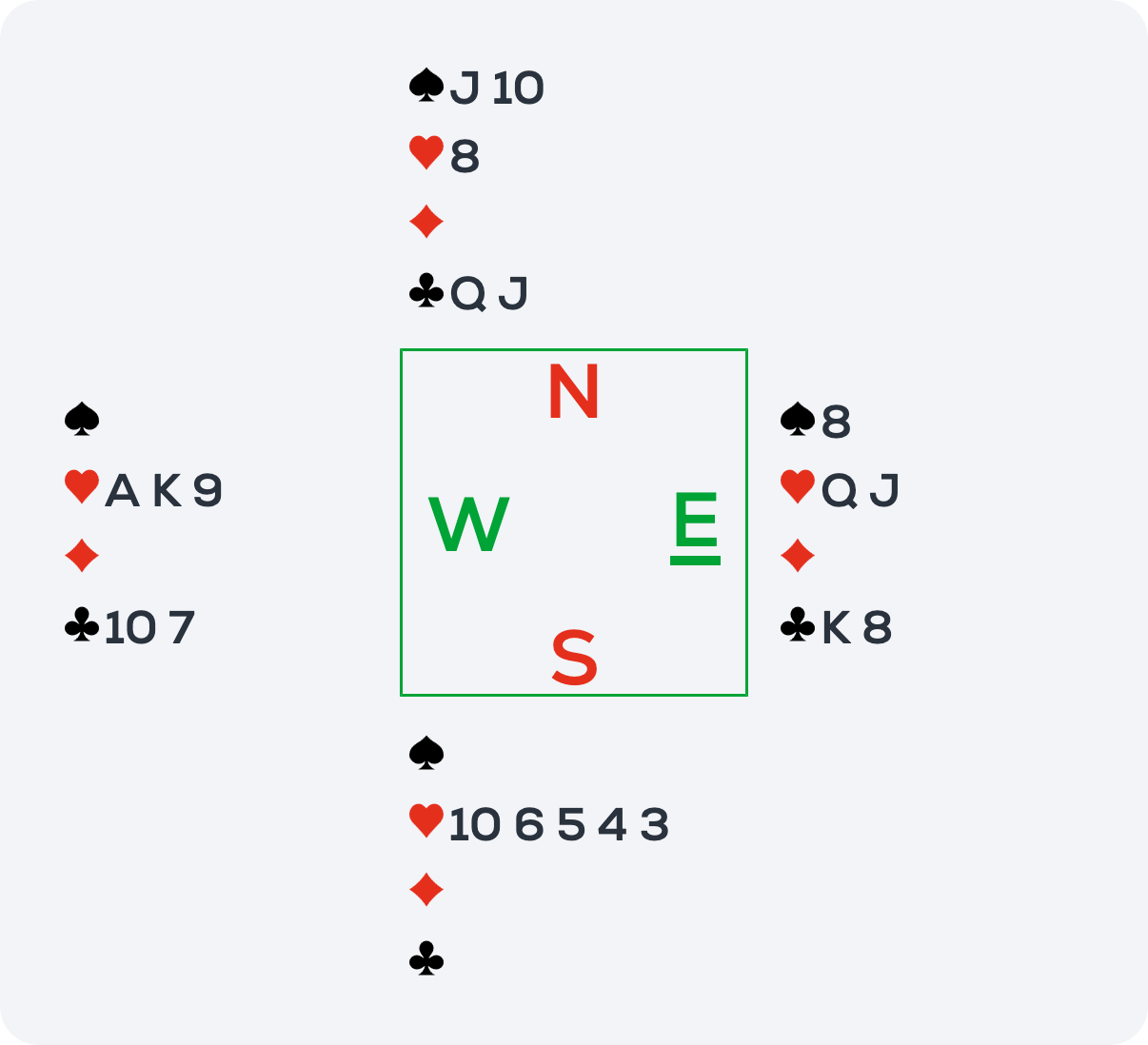
By cashing three hearts, he would force North to unguard one of the black suits, so he claimed the remaining tricks, +1520 and 17 IMPs.
The final was a thriller. Delimpaltadakis led 35-31 after session 1, but Street bounced back in session 2 to lead 67-49. Session 3 saw Delimpaltadakis regain the lead 95-90 and as the final session unfolded, they increased their advantage to 116-96 with only six deals remaining.
Board 26. Dealer East. All Vul.
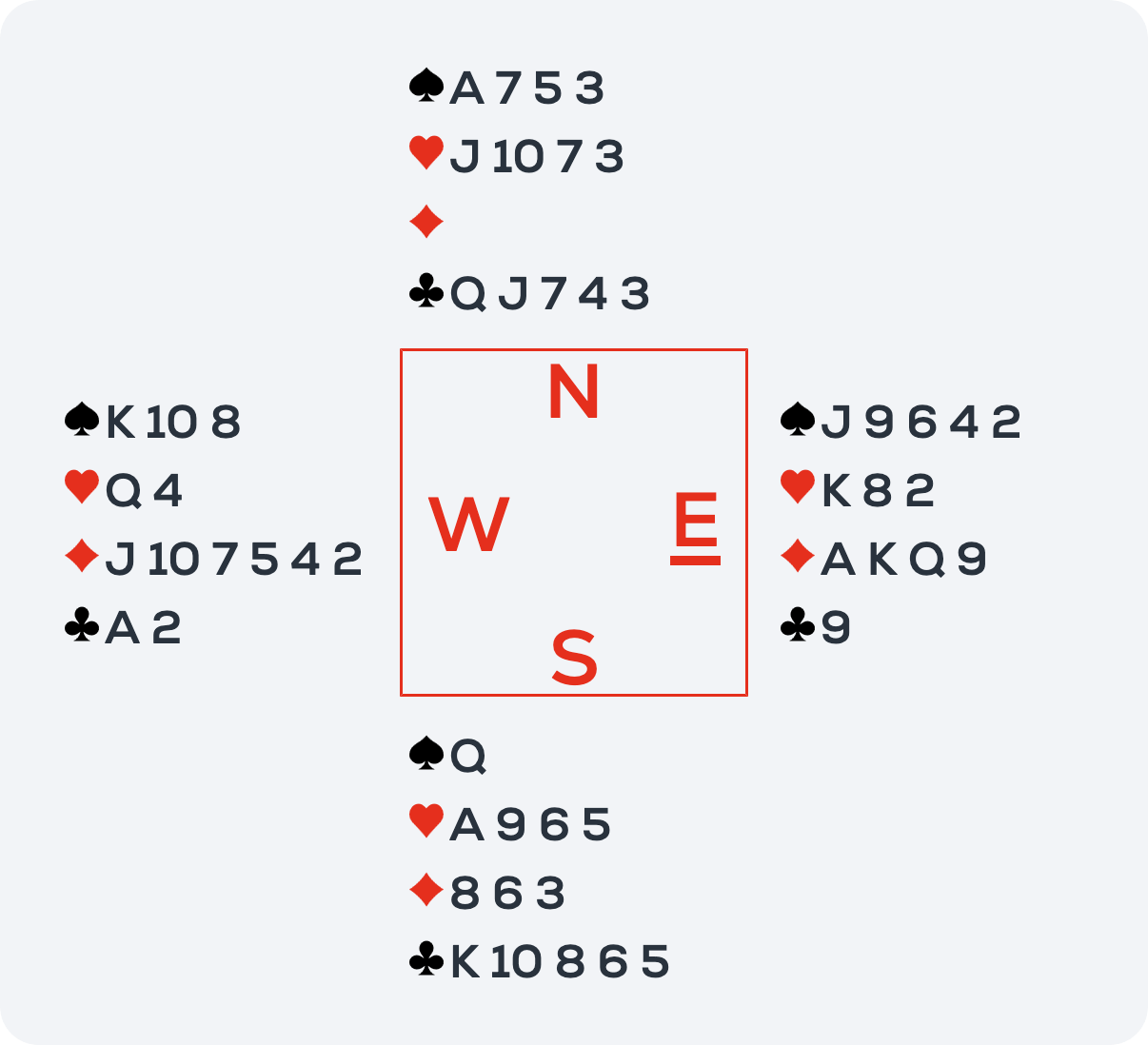
Open Room
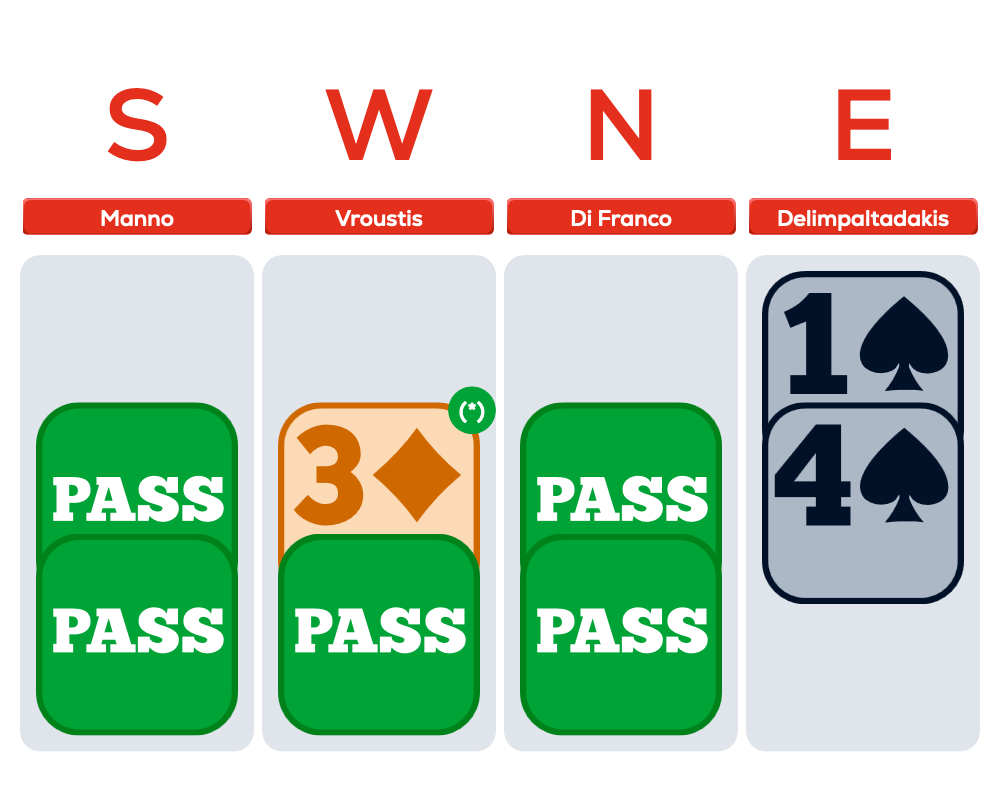
South led the ♦3 and North ruffed and switched to the ♥7, South winning with the ♥A and returning the ♦6, the second ruff along with the ♠A defeating the contract, -100.
Closed Room
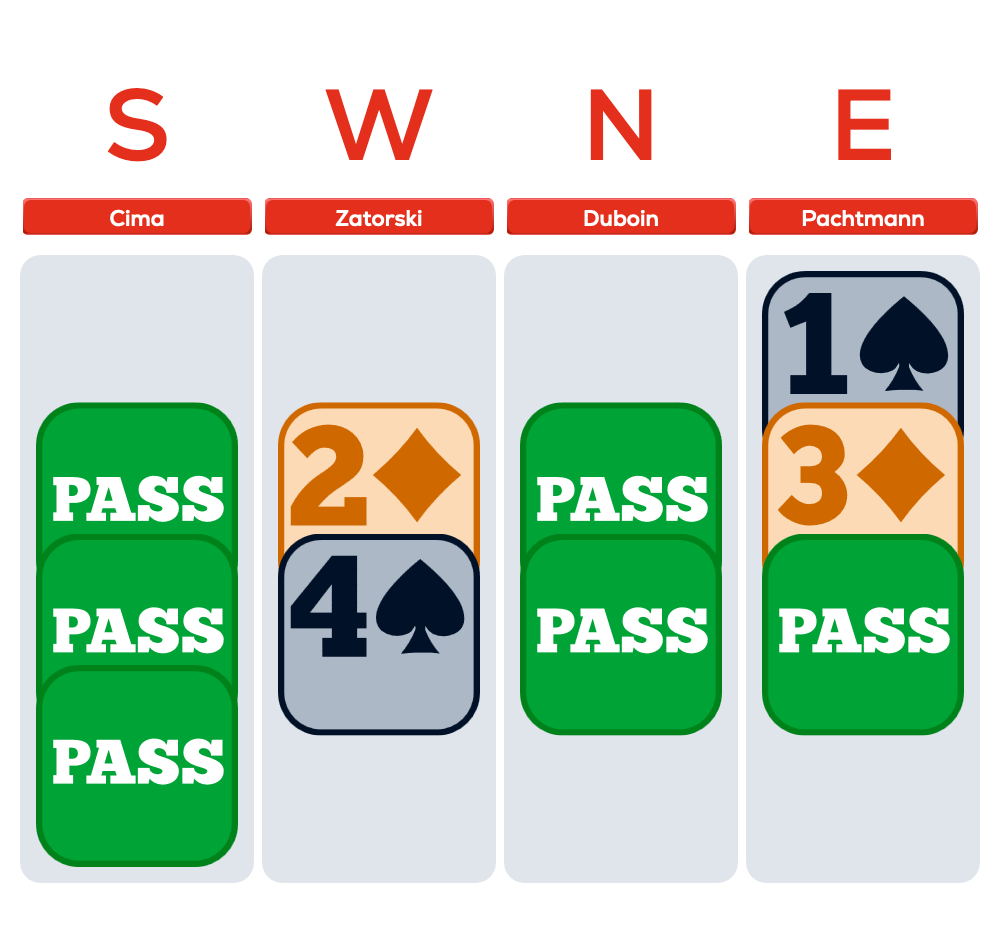
South led the ♣5 and declarer won with dummy’s ♣A, ruffed a club (a heart is best) and played a spade for the queen, king and three. When declarer continued with dummy’s ♠8, North could have ensured the demise of the contract by winning with the ♠A and playing a club. Declarer could ruff in dummy and play a diamond, but North would ruff and play a heart to partner’s ace to secure another ruff.
However, North followed with the ♠5 and now declarer could have prevailed by playing a diamond, unblocking an honour when North ruffs. Instead he played the ♥Q, offering the defenders a final opportunity. If South ducks and declarer continues with a heart, South wins, plays a diamond for North to ruff after which he can cash the ♠A and play a heart. If declarer tries to come to hand with a diamond, North ruffs, cashes the♠A and plays a heart.
When South took the ♥Q and returned the ♣K, the ruff and discard was too late, declarer claiming 10 tricks, +620 and 12 very big IMPs, taking the score to 116-111.
Board 57. Dealer South. None Vul.
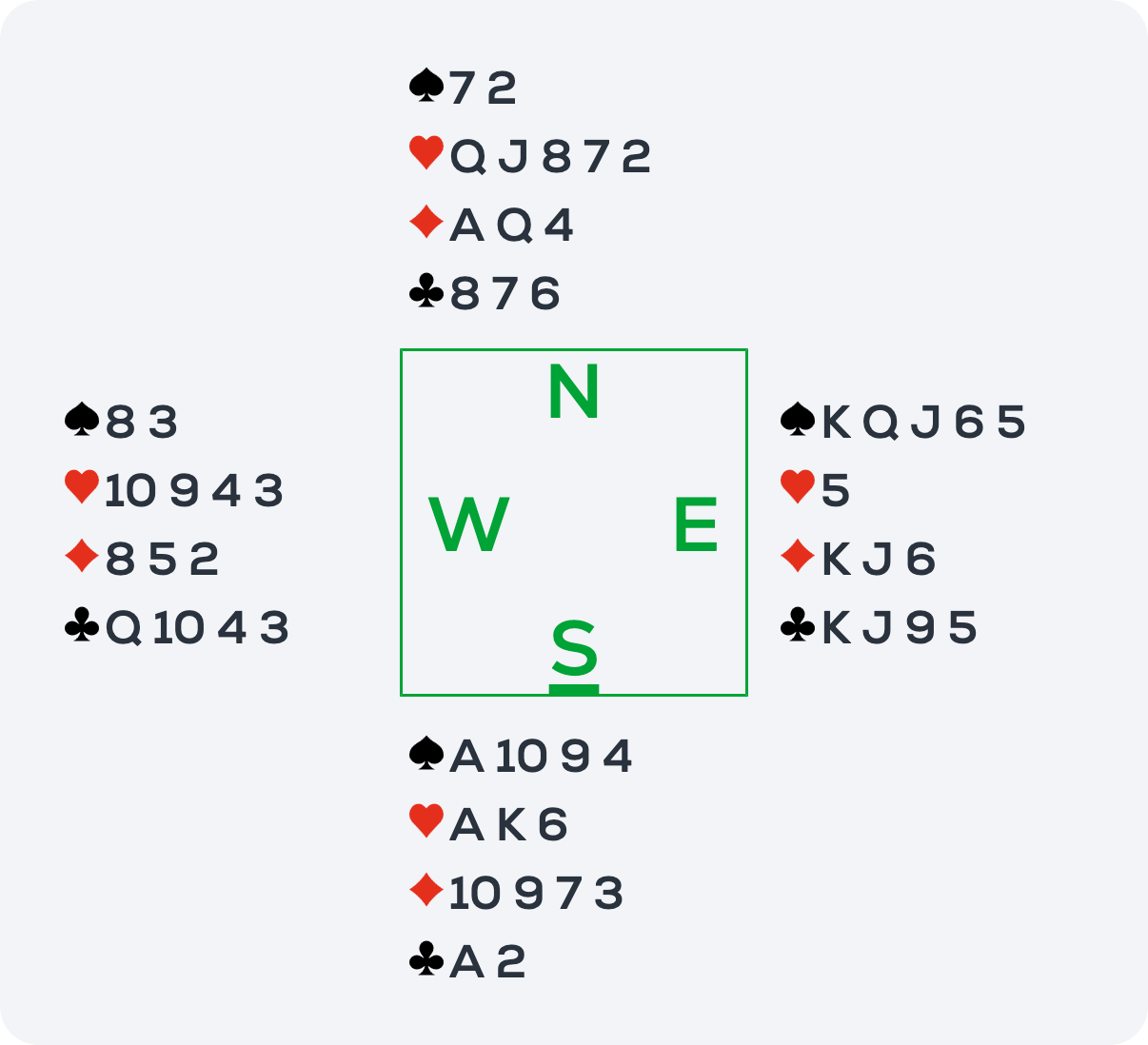
Open Room
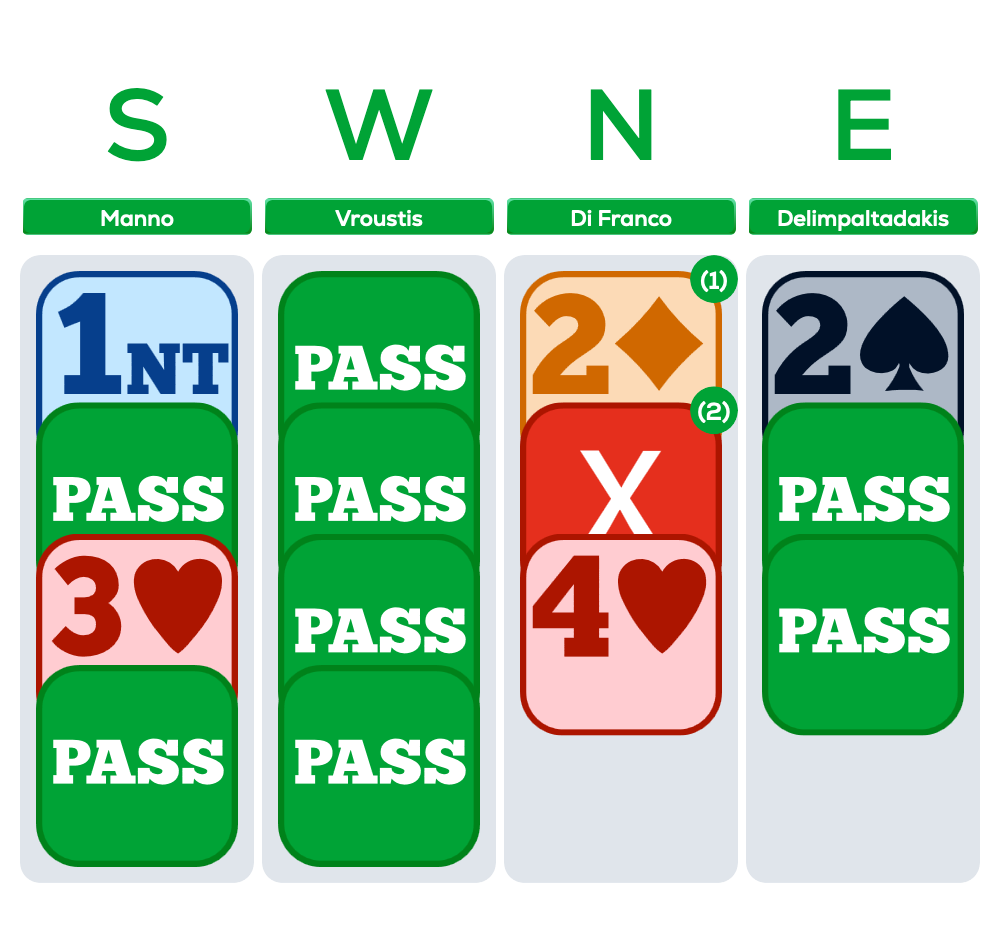
(2) Takeout
2♠ doubled would have been at least one down, but supporting hearts was a logical alternative.
West led the ♠8 and declarer won with the ♠A and ducked a club, East winning, cashing the ♠Q and exiting with the ♥5. Declarer won with the ♥A, unblocked the ♣A and played a diamond for the queen and king, East returning the ♣K. Declarer ruffed, cashed the ♥K and ran the ♦10, but when that lost he was one down, -50.
Closed Room
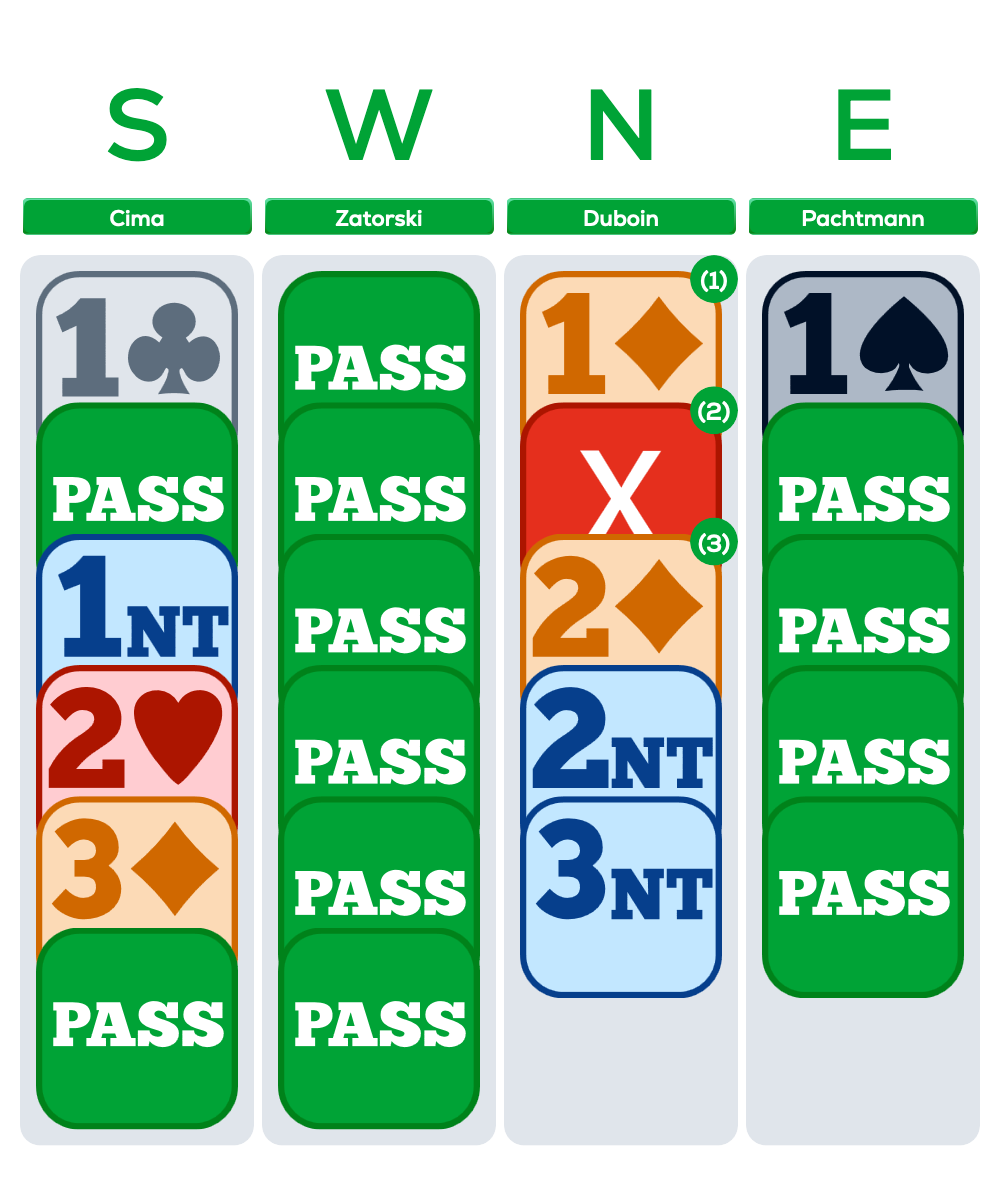
(2) Takeout
(3) Transfer
West led the ♠8 and declarer took East’s king with the ♠A and ran the ♦10, East winning and switching to the ♣5. West won with the ♣10 and returned the ♣3 and when declarer won and played a diamond to the queen he was three down, -150 and lost 3 IMPs.
Do you see how declarer could have made his contract?
After taking the ♠A, he should follow Patrick Jourdain’s Bols Bridge Tip of cashing your long suit and take five rounds of hearts. East cannot afford to discard a diamond and must keep two spades, so he can only keep two clubs. Having taken the hearts, declarer exits with a spade, ducks the club return to West, wins the diamond switch with dummy’s ♦A, comes to hand with a club and exits with a spade, forcing East to give the last trick to dummy’s ♦Q.
Had the contract made, the 10 IMP swing would have seen Delimpaltadakis win by a single IMP!

Photo by permission of the ACBL and Francesca Canali
With 9560.05 tables, an increase of close to 3000 over the Spring Nationals in Louisville, bridge is moving in the right direction.
What did you think of this article ?
Share your view in the Comments section below!



